




By Sydney Topf Senior Writer
Boston University will rename Myles Standish Hall to 610 Beacon St., following years of activism on campus calling for the removal of the controversial colonial military leader’s name from the dormitory.
The Executive Committee of the Board of Trustees unanimously voted on May 16 to accept Interim President Kenneth Freeman’s recommendation to change the name. Freeman’s recommendation to rename the building comes before President-Elect Melissa Gilliam assumes office in July.
In a letter obtained by The Daily Free Press, Freeman announced to the Faculty Council on May 23 that BU would remove Standish’s name from the building. The news was made public the same day.
The decision came after the council sent a letter to the interim president on April 9 requesting he consider the change.
“In making my recommendation, I referenced the arguments and sentiments reflected in the Council’s recommendation and in the petitions and letters the Council referenced,” Freeman wrote in his letter.
Since BU has “no restrictive covenants” or “gift agreements associated with the Myles Standish name,” the University was able to make this change, according to Freeman.
In the letter, Freeman wrote that “it is helpful to have the option for a donor to name a major, highly visible building,”
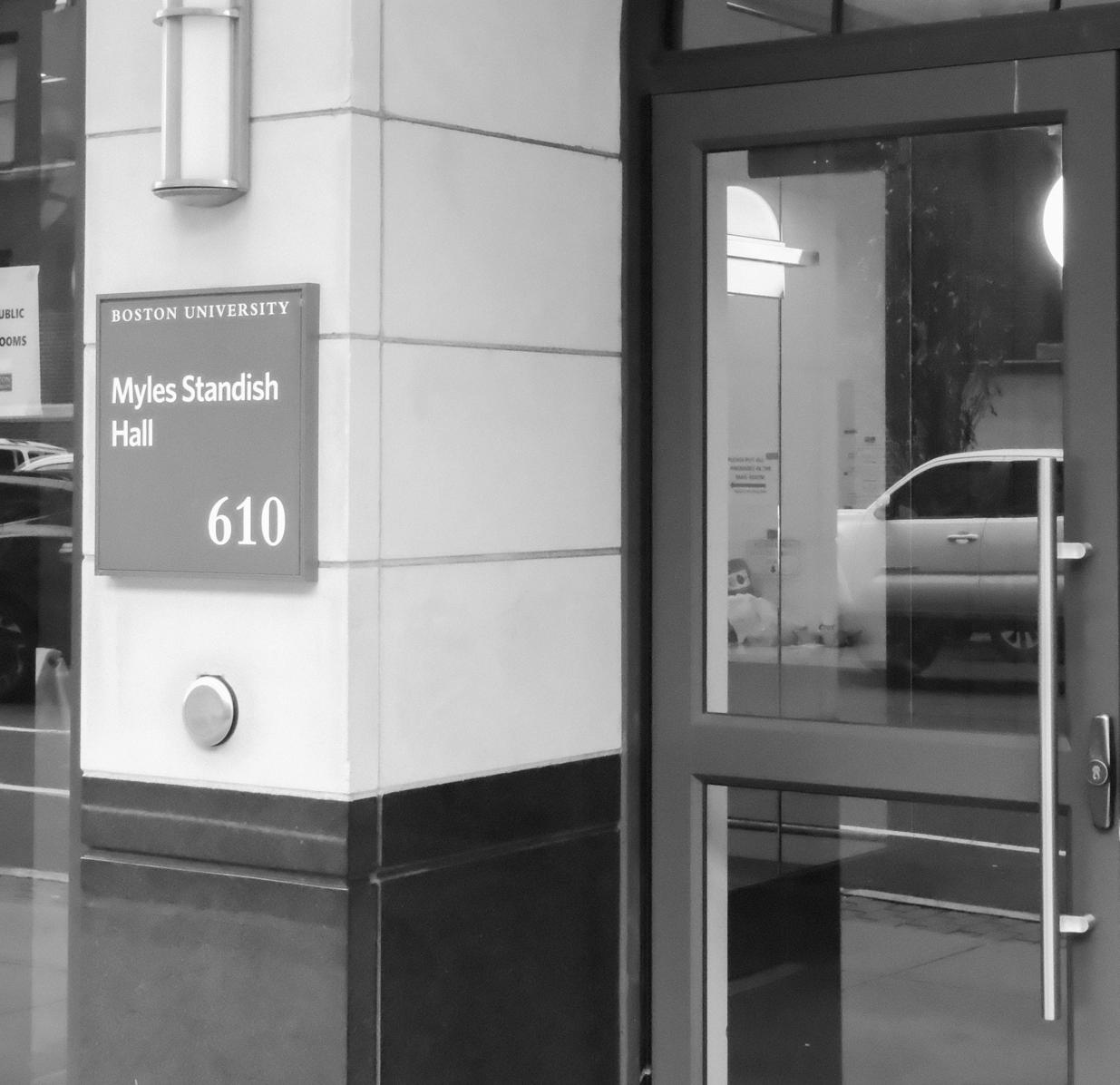
referring to the dorm, which was previously owned by the Myles Standish Hotel and bought by BU in 1945.
Standish is a recurring symbol throughout Massachusetts — including on the state’s seal. The state seal and flag features a Native American holding an arrow in his left hand and a bow in his right hand. Above the figure is a sword modeled after Standish’s, pointing downward, toward the Native figure’s head.
Native Americans have said the seal’s imagery is offensive due to Standish’s violence toward local tribes. Standish
is known to most for his role as commander of the militia of establishing Plymouth Colony, the first English colony. However, at a peaceful summit in 1623, Standish ambushed and murdered Indigenous war chiefs, warriors and several Wessagusset villagers, according to Massachusetts Tribal History. Standish also beheaded the tribal leader Wituwamat and displayed his head at the Plymouth Colony meetinghouse as a warning to other tribes. In fall 2021, The Massachusett Tribe at Ponkapoag and Travis Franks, a former postdoctoral associate
at Kilachand Honors College, petitioned to rename Myles Standish Hall to Wituwamat Memorial Hall in honor of the tribal leader Standish killed.
The petition received more than 1,900 signatures.
Former President Robert Brown rejected the petition, arguing the importance of honoring Standish’s contributions to Massachusetts history, as previously reported by The Daily Free Press.
“To remove his name from the residence hall would discount his significant role in our history,” Brown wrote in a 2021 letter obtained by the Daily Free Press.
In response to Brown’s rejection, more than 170 student organizations on campus signed an open letter to Brown and the Board of Trustees in Fall 2022, urging them to rename the building to Wituwamat Memorial Hall.
“Boston University’s refusal to honor the wish of the Massachusett Tribe to rename Myles Standish Hall sends a message that the genocide of Indigenous People by European colonists is tolerable and worthy of praise and recognition,” the letter said.
In his letter, Freeman thanked those who wanted to maintain the building’s name as well as those who advocated to change it, particularly the 170 student organizations.
“This decision reflects their advocacy, too, and I am grateful to those faculty, staff, and students for initiating this conversation several years ago,” Freeman wrote.
Anne Joseph, a senior at BU and an organizer of the open letter, was disappointed that the University did not rename the building to Wituwamat Memorial Hall.
Joseph was upset that the University did not take students’ opinions into account because of their constant communication with administrators about the issue.
“Using our work [and] crediting it to kind of praise the work but not actually listening to what we said,” Joseph said. “It’s definitely disappointing.”
Organizers are still advocating to rename Myles Standish Hall to Wituwamat Memorial Hall. Joseph said the “fight is not over” and they “will not disappear.”
Akwasi Antwi, a senior at BU and incoming student body president, said the renaming is “a long time coming.”
Antwi, who grew up in Massachusetts, said it “saddens” him to see Standish represented on his state’s flag.
“Massachusetts is still a living breathing embodiment of actions that he took,” Antwi said. “Not only just Massachusetts, but the entire New England region is rooted in the history of oppressing Native Americans.” He said students should feel “gratified but not satisfied” about BU’s decision to rename the dorm.
“I’d be cautious and advise the student body that this is not the time to just celebrate this one win,” Antwi said. “When just looking at our world right now and what BU is involved in, I think that there’s so much more to be done.”
worker strike continues: everything to know about BUGWU so far
By Kayla Baltazar Campus Co-Editor
The Boston University Graduate Workers Union has entered its 10th week of striking against the BU administration.
Beginning March 25, the union has picketed to demand changes to its workers’ contracts and benefits. This includes higher wages, comprehensive healthcare, childcare funding and workload protections.
Formally becoming a union
BUGWU held its first rally bidding for unionization on Sept. 20, 2022. About a month later, a majority of graduate workers filed for union authorization cards with the Boston office of the National Labor Relations Board.
On Dec. 7, 2022, 98% of BU graduate workers voted to unionize with Service Employees International Union Local 509, a union organization representing nearly 20,000 educators and human service workers in Massachusetts. After the union was finalized, BU was required to bargain with union representatives over contract terms and conditions. The first bargaining session took place June 9, 2023.
Negotiations and rallies during fall 2023
On Sept. 14, 2023, the University tentatively agreed to BUGWU’s proposition for a separability article but did not offer counterproposals for BUGWU’s other requests. A separability article makes each clause of an agreement between two parties independent — if new legislation invalidates a section of the agreement, only that section would be void.
A few weeks later, on Oct. 10, 2023, BUGWU proposed
three articles regarding regular paydays, Joint LaborManagement Committee and work assignments. The BU bargaining team then held a caucus to discuss the proposals.
Ten days later, BUGWU joined the BU ResLife Union and the adjunct faculty in a threeday rally as a demonstration of the unions’ solidarity.
In the final bargaining session of 2023, BUGWU requested two bargaining sessions per month for the spring 2024 semester. BU responded with tentative dates to meet once a month.
Counterproposals from the University
At a negotiation session on Jan. 24, BU presented four counterproposals addressing a Joint Labor-Management Committee, work assignments, performance evaluations and professional development.
On Feb. 15, BUGWU called for a general membership meeting following another bargaining session to determine if the union should start a strike authorization vote.
BU administration requested another bargaining session for Feb. 16. At this meeting, the University presented revised counterproposals. The parties made a tentative agreement regarding a Joint LaborManagement Committee.
BUGWU votes and authorizes strike
On Feb. 27, BUGWU announced a strike authorization vote would take place from Feb. 28 to March 11. The BUGWU bargaining team would consider authorizing a strike if a majority voted in favor, according to a BUGWU newsletter.
The decision came after eight months of bargaining with the University, which yielded little
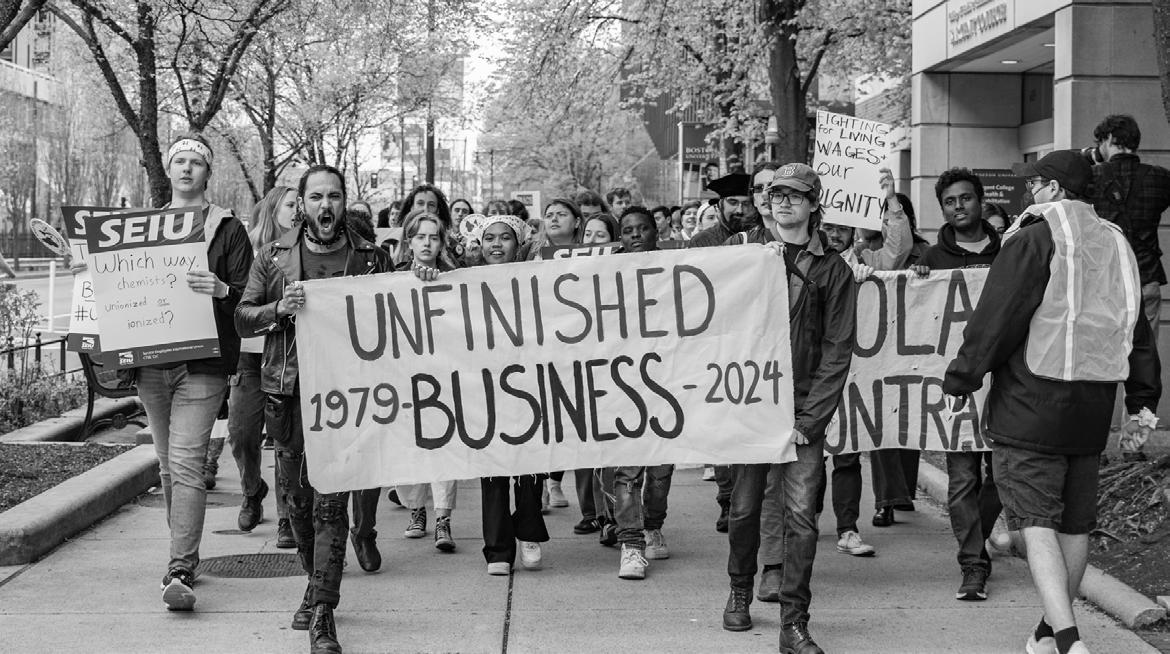
difference in the “status quo” and the University’s failure “to provide the information we need in order to negotiate effectively,” according to the newsletter. Contract negotiations continued throughout the voting process.
On March 12, BUGWU announced on its Instagram that 90% of graduate workers voted in favor of a strike.
“The students in BUGWU are also our students, and we care deeply about their success and working life at Boston University and seek to create conditions that will support their progress,” wrote Interim Provost Kenneth Lutchen in an email to undergraduate students a week after the strike authorization.
Graduate worker strike commences
The BUGWU strike began March 25 with a rally at Marsh Plaza, which attracted support from undergraduate students, professors and local politicians.
Massachusetts Rep. Ayanna Pressley and Sen. Elizabeth Warren attended the rally to voice their support for the graduate
workers. On the social media platform X, Bernie Sanders called for BU to “bargain a fair contract immediately” with the union.
Strike support and negotiations continue
On March 26, the Office of the Provost sent BU faculty and staff an email stating the University will not be paying striking students.
In response to the email, BU faculty and staff created a petition against the University which received more than 160 signatures.
On March 27, Boston City Council unanimously passed a resolution in support of BUGWU.
Students and faculty expressed concern after College of Arts and Sciences Dean Stan Scarloff sent an email to his colleagues on March 27 suggesting the use of artificial intelligence tools to replace striking graduate workers. The email was obtained and verified by The Daily Free Press. BU spokesperson Colin Riley
denied that BU encouraged replacing graduate workers with AI, as previously reported by The Daily Free Press.
Closing out the third week of the strike, the BU ResLife Union announced that it would join BUGWU for a four-day strike over the Boston Marathon weekend.
On April 23, BUGWU posted a statement to Instagram stating SEIU Local 509 filed two unfair labor practice charges against BU. The statement cited three unfair labor practices and alleged BU engaged in “reckless strikebreaking efforts.”
In response to an April 29 email from the provost that said 80% of BUGWU workers had gone back to work, BUGWU called on the BU community to join striking graduate workers in a walkout. BUGWU claimed 94.9% of graduate workers had voted to strike for the fifth week.
Recent updates
While BU Commencement took place on Nickerson Field on May 19, graduate workers picketed in front of Agganis Arena.
According to BUGWU member Nive Senthilvel, she and other graduate workers haven’t received payment in eight weeks and continue to bargain with the University.
“We’re not trying to ruin the experience for students or anything like that,” Senthilvel said. “This is our commencement, too. We want students to be aware that they’re graduating, but the people who made their college experience possible continue to work here and continue to fight for living wages and good working conditions.”
Megan Amato contributed reporting.
By Crystal Yormick Campus Co-Editor
Kenneth W. Freeman will end his time as Boston University’s interim president on June 30. Freeman led BU during the 2023-2024 school year while the University’s Board of Trustees searched for a permanent replacement following former President Robert A. Brown’s resignation in July 2023.
Freeman was appointed as interim president in May 2023 by BU’s Board of Trustees. Freeman wrote in an email that as interim president, he strove toward “continuing the positive momentum from Dr. Brown’s presidency.”
According to Freeman, this was achieved by executing the 2030 Strategic Plan, a vision statement he helped create during the 2020-2021 school year with five strategic priorities including high quality academics, research, diversity, community and global impact.
Freeman also focused on creating a “comprehensive response” to the crisis in the Middle East. This included learning and engagement opportunities, establishing working groups to address issues presented to Jewish, Muslim and Arab BU community members and creating a Civility & Campus Discourse website, according to a letter Freeman wrote to the BU Community on Jan. 18.
Freeman’s “strong record” and “good relationship” with the Board of Trustees and the University’s leaders led to his appointment, BU Spokesperson Colin Riley said.
“I believe the Board of Trustees certainly recognized his intelligence, his talent, his thoughtful approach and they thought he would be a very good interim president,” Riley said.
Freeman first came to BU in 2010 when he became the Dean of the Questrom School of Business. Since then, he has served as interim vice president for human resources and led BU Virtual, a program for BU to provide online graduate education.
Freeman, a first-generation college student, wrote that college changed his life and his “loyalty to BU” was the main factor in his decision to accept the role of interim president . He also wrote that his experience working at the University has been “wonderful.”
“My wife of 52 years says that she has never seen me happier going to work than during my time at BU,” Freeman wrote.
Freeman stepped into his role during a tumultuous time for the University amidst protests and workers’ strikes, describing his year as “challenging and rewarding” during a time of “stress and upheaval in higher education.” Dean of the College of General Studies Natalie McKnight wrote in an email that Freeman’s time at the University was the most “contentious time” she’s seen in the 34 years she has worked at BU.
McKnight co-chaired the BU Remote Work Policy Committee with Freeman, a policy BU continues to follow today. The two worked together for months, and McKnight described Freeman as “calm, wise, judicious and accessible.”
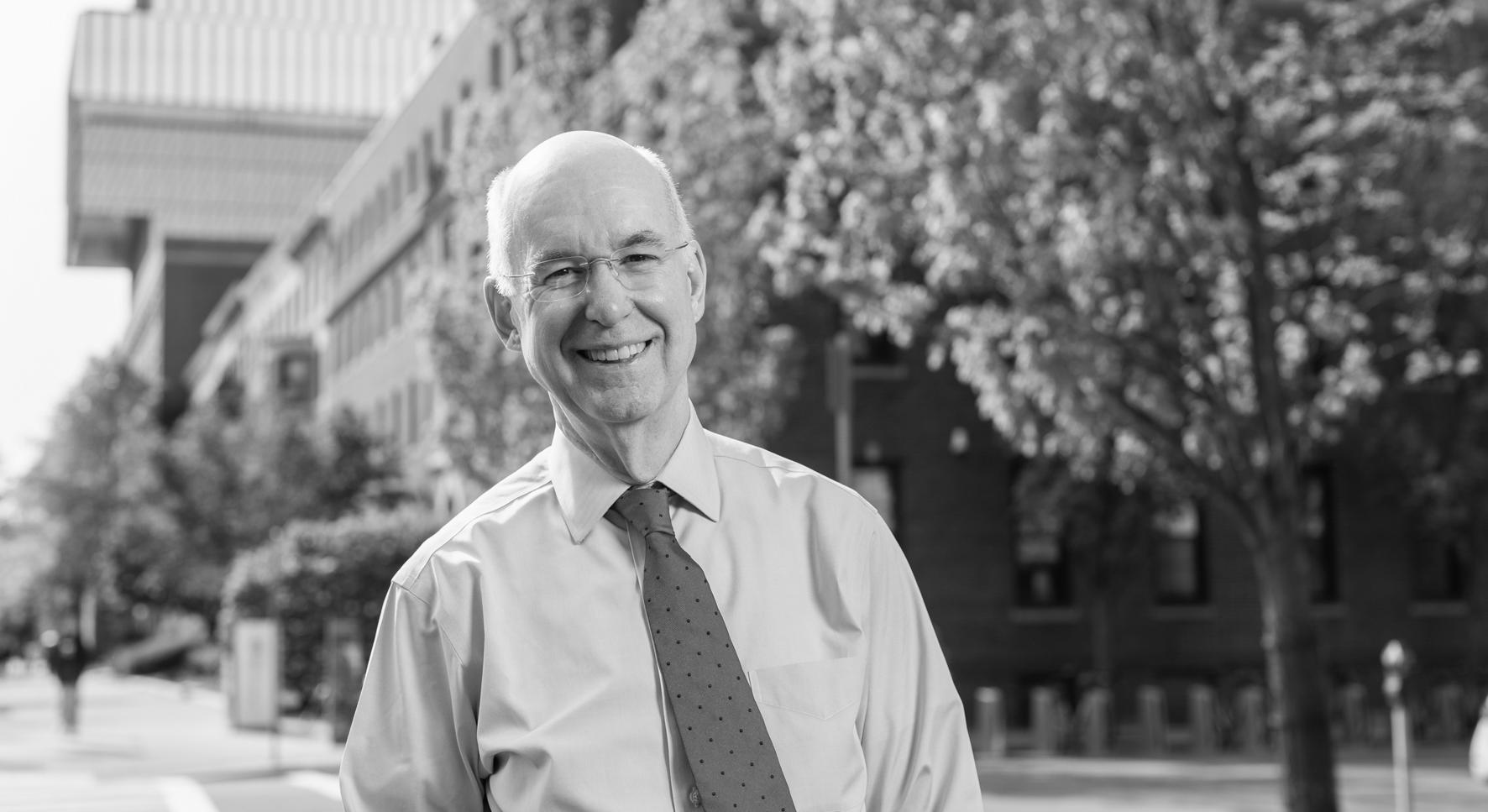
“Ken Freeman is one of the most skilled leaders I have ever had the privilege to work with,” McKnight wrote in an email.
“I am grateful to him for his leadership at BU.”
Dean of the College of Communication Mariette DiChristina said she admired Freeman’s leadership while the University searched for a President and a Provost, his response to the Israel-Gaza conflict and his support for the entire University.
“I’m really grateful to have had his leadership during this time, partly because he’s been [a] wonderful, trusted leader at the helm,” DiChristina said. “He’s helping us figure out how we are going to next transition for our new leadership.”
Dean of the College of Fine
Arts Harvey Young worked extensively with Freeman during his tenure as Dean of Questrom and also as interim president. Young said that Freeman’s involvement and accessibility during his time as interim president stood out to him.
“He’s made a very big university that can at times feel impersonal, feel much smaller, more cohesive,” Young said.
According to Young, Freeman’s assistance during student move-in and school events attendance with students exemplified his thoughtfulness.
Young added Freeman’s personal connection to the arts has benefited both the CFA and the entire University.
“You want that skill set in a president,” Young said.
“You want a person who can appreciate the many dimensions of a university, so it’s not just one side or the other.”
Although Freeman has not yet announced the next step for his career, he wrote that he plans to keep working and is “considering different possibilities.” He does not plan on returning to any previous roles he has worked in at BU.
Freeman will remain in office until Melissa L. Gilliam assumes the presidency on July 1. He wrote that he looks forward to BU’s continued advancement under her leadership.
“I hope I will be viewed as a person that genuinely cares about Boston University and tried his best to advance BU during a time of significant challenges,” Freeman wrote.
By Leia Green and Charlie Johnson Associate City Editors
A turbulent year of student protests in response to the war in Gaza has culminated in several demonstrations at college commencement ceremonies across Greater Boston.
At Boston University, the 2024 graduating class entered Nickerson Field in red and white for the 151st All-University Commencement ceremony on May 19. Student demonstrators took the opportunity to assert their stances on the conflict, which has heightened tensions on college campuses nationwide.
Some graduating students remained seated during the national anthem as a form of protest. Student Commencement speaker Michael Arellano and several others draped keffiyehs — traditional Arab headdresses that have come to symbolize Palestinian freedom and solidarity, according to NPR — over their gowns.
The ceremony climaxed after bestselling author and journalist David Grann finished delivering the Commencement address. Roughly 100 graduates rose and walked out of the ceremony while
chanting, “Free, free Palestine.”
A banner held by protesters read “75+ Years of Colonialism” on one side and “All Eyes on Rafah” on the other.
The demonstration, organized by BU Students for Justice in Palestine, joined protesting members of both the BU Graduate Workers Union and the BU ResLife Union in an integrated picket line along Harry Agganis Way.
“It was a very communitybuilding experience,” said Rakan Al Sarebi, a senior at BU and member of BU SJP. “It was amazing to see the solidarity between graduating students, undergrads and striking BUGWU workers.”
The walkout concluded a year of many on-campus protests by BU SJP, calling for BU to disclose their investments and divest from companies connected to the Israeli military.
“The whole mantra of those kinds of disruptive protests is that you cannot have your business continue as usual while you’re complicit in those things,” Al Sarebi said.
Since the fall, student protests have dominated news headlines and populated Greater Boston campuses. Mass
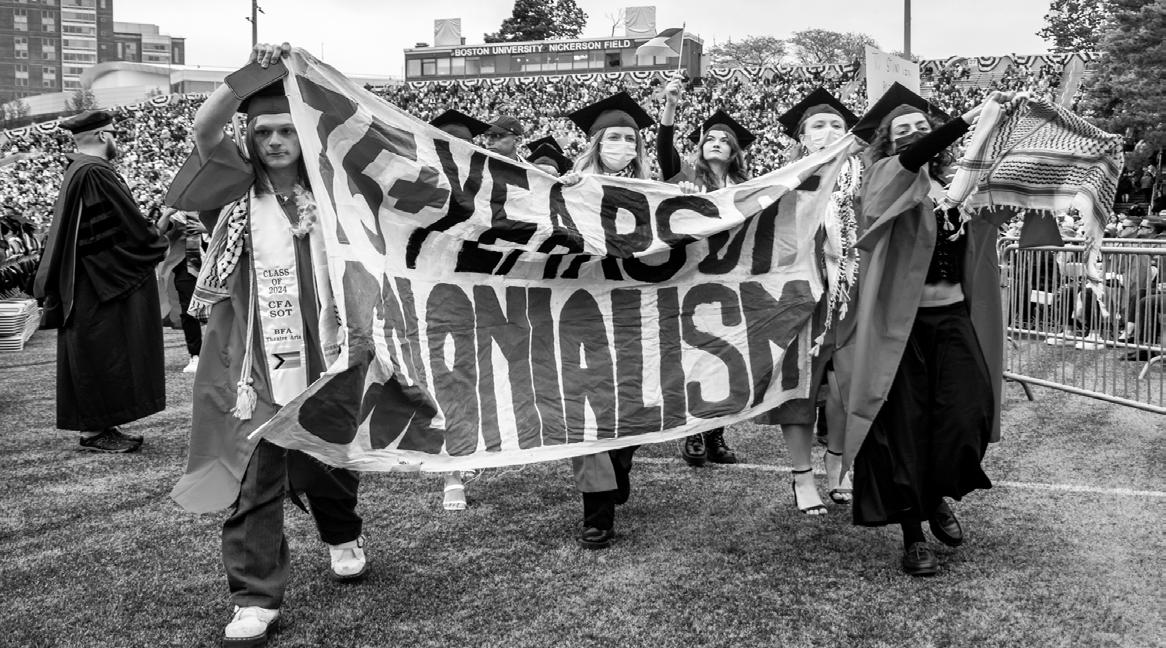
student arrests, disciplinary action and antisemitism have divided campuses and escalated administrative discontent.
At Harvard University, the administration barred 13 undergraduate students from receiving their diplomas due to their involvement in on-campus protests in solidarity with Palestine, according to the New York Times.
“We’re in sympathy with those students,” said Cole Harrison, executive director of Massachusetts Peace Action, a non-profit organization focused on peaceful United States foreign policy. “Harvard should not discipline them, they should applaud them.”
Hundreds of students walked out of Harvard’s commencement ceremony on May 23, chanting, “Let them walk,” in reference to those 13 students.
Massachusetts Peace Action also organized a vigil outside the ceremony to demand a ceasefire in Gaza, the release of hostages and Palestinian political prisoners and the rescindment of student suspensions, according to a press release. Outside the walls of Harvard Yard, protesters held up banners reading “Ceasefire now,” “Harvard out of occupied Palestine” and “Let Gaza live.”
Jon Hiratsuka, a retiree and vigil attendee, said the vigil supports an end to “the assault on Gaza” and the student protesters who have “put their careers on the line” to stand up for their beliefs.
“[The students] are turning outrage into action, instead of wringing their hands and looking the other way,” Hiratsuka said.
Rotem Spiegler, an alumnus of Harvard Law School, said she attended the vigil because many Jewish and Israeli students have felt “very excluded” from oncampus protests.
“A lot of Deans [are] taking a stand on graduation events, which made Jewish families just get
up and walk out,” Spiegler said. “[The protesters] should not feel alone, so we want to show them a little bit of support.”
Counter-protests in support of Israel and accusations of antisemitism have further intensified tensions on campuses.
Three days before Harvard’s commencement ceremony, the Louis D. Brandeis Center for Human Rights Under Law filed a lawsuit against the university for failing to address “cruel antiSemitic bullying, harassment and discrimination” within the institution, according to a press release.
Harrison said while there may have been instances of antisemitism at Harvard, he doesn’t think students protesting for Palestine inherently creates “a serious antisemitism problem.”
“To say that all these student protesters are antisemitic is so far off the mark,” Harrison said. “It’s just complete B.S.”
During BU’s Commencement, several attendees booed the BU SJP protestors when they walked out of the ceremony. At the same time, some held up Israeli flags in the crowd.
A counter-protest approached the picket line of BU SJP, BUGWU and ResLife student protesters holding a blended U.S. and Israeli flag. Boston Police formed a line dividing the two protests.
Shayna Dash, a junior at BU and co-president of BU Students for Israel, said she has been a “victim of antisemitism on campus one too many times.” She said some chants at demonstrations for Palestine are “blatantly antisemitic,” such as “from the river to the sea,” which she said calls for the elimination of the Jewish state.
Al Sarebi said the phrase has “nothing to do with the expulsion of Jews.” He said it calls for “decolonizing Palestine” and refers to the Jordan River and the
Mediterranean Sea, the original borders of Palestine before British colonization.
However, in mid-April, the U.S. House of Representatives passed a resolution condemning the phrase as antisemitic, according to the Times of Israel.
Dash said she has always wanted to sit down with BU SJP and discuss how rhetoric used by both groups is “not making campus better.”
“How do we do that together versus just going back and forth constantly?” Dash said.
While the war in Gaza and resulting student protests have impacted college communities nationwide, student activism has received praise for its role in holding academic institutions accountable.
Student demonstrations at such institutions as Columbia University, Brown University and the University of Southern California have made national headlines. Benjamin Punzalan, a sophomore at Columbia — which canceled its 2024 commencement ceremony after weeks of student protests — said there will be a “lasting” impact of these demonstrations on his campus.
“At least in my time [at Columbia], there will still be these kinds of tensions between administration and students,” Punzalan said. “A lot of students, no matter how they feel about the protests, don’t feel great about how the administration handled what happened.”
It is uncertain whether oncampus protests in the Greater Boston area may quiet down during the summer months.
“The city of Boston has been focusing on the situation in Palestine like never before,” Harrison said. “We need much more attention on this, and we hope that the activism that’s come up around this genocide will be extended to broader peace classes as well.”
BY LAUREN ALBANO City Co-Editor
June 24 will mark two years since the Supreme Court overturned Roe v. Wade, a landmark case that legalized abortion in the United States, reversing a nearly 50-year precedent on reproductive rights.
In the face of increased restrictions on abortion nationwide, since the case was overturned, Massachusetts continues to legally protect abortion. Greater Boston community members and leaders recognize how two years post-Roe have impacted Massachusetts and how abortion may affect the 2024 presidential election.
In the 1973 case of Roe v. Wade, the Supreme Court ruled in a 7-2 vote that a Texas law restricting abortions was unconstitutional, according to the National Constitution Center. It decided the right to privacy implied in the 14th Amendment protected abortion as a fundamental right.
The 2022 court case Dobbs v. Jackson Women’s Health Organization, which challenged a Mississippi law banning abortion after 15 weeks of pregnancy, ended the federal constitutional right to abortion and delegated reproductive rights decisions to the states.
Nicole Huberfeld, a Boston University professor of health law, said reproductive rights are “everything,” as they demonstrate how people think of roles in society.
“That has been true for a long time but is even more true in the wake of the Dobbs decision,” said Huberfeld, who is also the co-director of BU School of Law’s Program on Reproductive Justice.
Massachusetts Citizens for Life formed after the Supreme Court decided Roe v. Wade in January 1973. MCFL’s mission is to grow the Massachusetts pro-life community and pass laws that support the overturn of Roe.
“The Supreme Court should not have had that sort of role in an issue that was not included in the Constitution,”
Myrna Maloney Flynn, president of MCFL, said.
Grace Park, a student at Wellesley College and copresident of Wellesley for Life, said Dobbs v. Jackson was “a big victory for the pro-life movement, but there’s still a lot of work to be done.”
Many states passed restrictions on abortion access following the Dobbs decision. As of May 1, 21 states ban or severely regulate abortion, according to a New York Times tracker.
Since the overturn of Roe, one in three women in the U.S. live in a state where abortion is prohibited, according to Planned Parenthood. There are organizations to provide women abortion services in states where it is prohibited, such as Aid Access, a telemedical abortion service that sends women in all 50 states abortion pills after an online consultation.
Rebecca Gomperts, the director of Aid Access, said the reversal of Roe v. Wade has inflicted “a lot of selfcensorship and fear” in women who have grown afraid of prosecution for seeking abortions.
At the same time, Flynn said, since Roe was overturned, MCFL has shifted its mission towards continuing to educate and correct “misinformation,” as women “have been sold lots of lies in the last several decades by the abortion industry.”
The American Civil Liberties Union of Massachusetts worked with partners in the Massachusetts legislature to pass “positive reforms” after the Dobbs decision, said Liv Santoro, deputy field director for civic education and mobilization of the ACLU of Massachusetts.
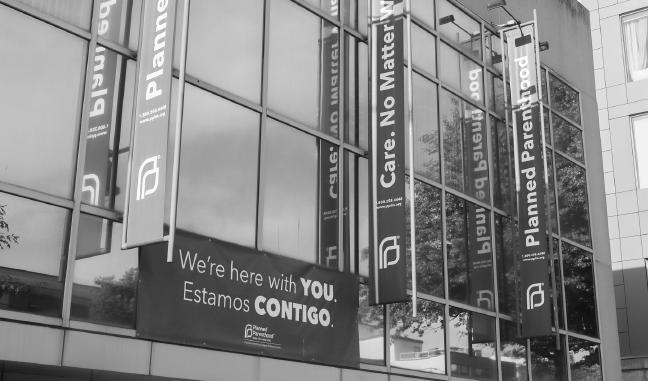
In 2022, Massachusetts enacted a law to protect those who facilitate access to abortion services from professional sanctions and external legal challenges, according to the Center for Reproductive Rights.
“We’re lucky to have state laws that protect both residents and those coming from out of state in accessing gender-affirming and reproductive health care,” Emma Staff, policy director of the Mayor’s Office of Women’s Advancement for the City of Boston, wrote in a statement to The Daily Free Press.
MOWA is committed to working with policy experts and advocates to see how municipalities like Boston can increase reproductive rights and abortion access “in innovative ways,” Staff wrote.
“Having access to the full spectrum of reproductive care is essential to ensuring that women and girls can make informed decisions that are right for their bodies,” Staff wrote.
Flynn said MCFL wants to assure women “they don’t have to feel pressured to take their baby’s life to succeed in this world.” She said choices besides abortion exist, such as
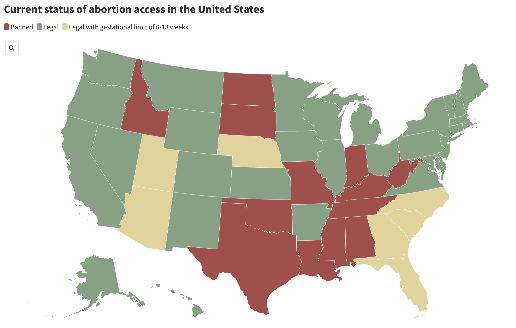
pregnancy resource centers, across the country, but they are getting shut down.
“States like Florida, Texas, Ohio, their state governors sign off on literally millions of dollars to fund pregnancy resource centers and help women in need, and we’ve got [legislators who] are just trying to spend money to shut these centers down,” Flynn said.
Meanwhile, Massachusetts allotted $2 million in its state budget to abortion infrastructure after the Dobbs decision, according to MassLive. Sheila Ramirez, director of public affairs for the Planned Parenthood League of Massachusetts, said this funding is unprecedented for the state.
Despite abortion being protected in Massachusetts, Ramirez said “attacks on abortion are not siloed to other states, and they can definitely impact folks here.”
The Eastern Massachusetts Abortion Fund, which provides direct funding to people seeking abortion care in eastern Massachusetts, saw an increase in calls and the number of patients traveling to the area after the Dobbs decision, said Sarah Fitz-Gibbons, community collaborations coordinator for the EMA Fund.
Aid Access strategically bases providers in states like Massachusetts that have shield laws to protect those providers from legal repercussions and still provide telehealth abortion pills in all 50 states, Gomperts said.
Now, two years after the overturning of Roe v. Wade, Huberfeld said “the court is not out of the business of abortion.” However, legal challenges post-Roe have begun to extend beyond abortion, she said.
“Overturning Roe has sort of opened the courthouse doors to additional litigation, making it so that people who want to move beyond access to abortion to other privacy rights or liberty interests are moving forward with those kinds of challenges,”
Huberfeld said.
The Supreme Court will decide two cases in the next month. Food and Drug Administration v. Alliance for Hippocratic Medicine could restrict access to the common abortion drug mifepristone in all 50 states. Idaho v. United States could overturn Emergency Medical Treatment and Labor Act protections on life-saving emergency care for pregnant individuals.
Impact on the upcoming election
The impact of the Dobbs decision and the issue of abortion lingers, especially as the presidential election this November approaches. Santoro said abortion will be a “key issue” on the ballot in November.
Ramirez said it is “crucial” to elect candidates who understand the overturning of Roe v. Wade is “not final” and who will continue passing legislation to protect abortion.
To gain pro-life votes in November, Flynn said MCFL plans to communicate with “people in the middle” instead of targeting voters who share its views.
“Once people learn the truth on abortion, they’ll support what we do,” Flynn said. “[Abortion is] certainly not the main issue for local voters because they’re worried about many other issues, and abortion isn’t going anywhere in Massachusetts.”
Taylor St. Germain, communications director of Reproductive Equity Now, an organization that aims to provide equitable reproductive healthcare access for all people in New England, said she thinks voters will “rise up” and go to the polls “in droves to support abortion access” this November.
“Reproductive freedom is on the line in every single election up and down the ballot in every state across the country,” St. Germain said.




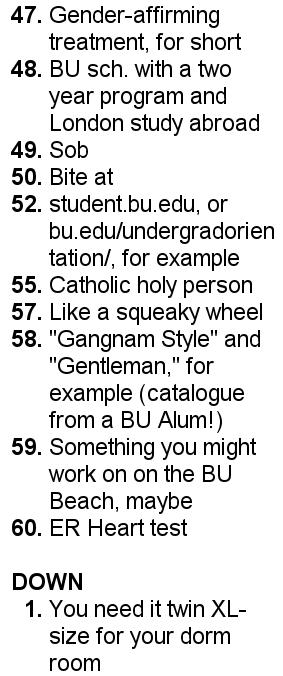

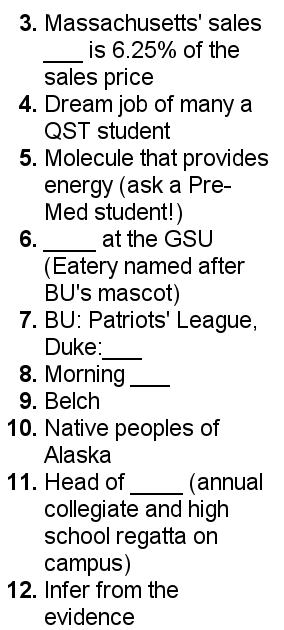
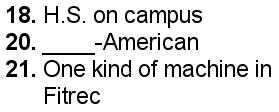
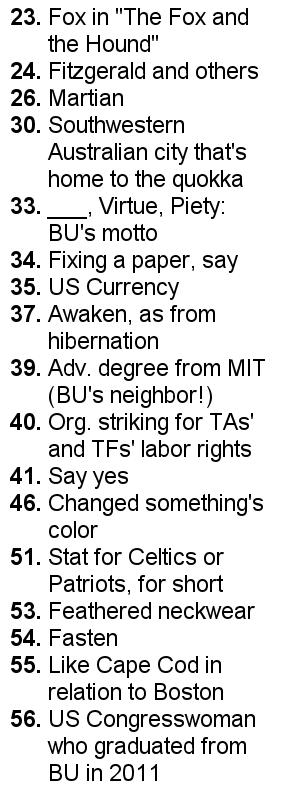

BY MOLLY POTTER DFP PHOTOGRAPHER
The 13th Boston Calling Music Festival occurred at the Harvard Athletic Complex over Memorial Day weekend. The three-day festival featured performances by artists including Ed Sheeran, Leon Bridges, Reneé Rapp, Young the Giant, Luke Hemmings, Beach Weather and kei on Friday and Tyler Childers, Trey Anastasio & Classic Tab, Frank Turner & The Sleeping Souls and Cakeswagg on Saturday. Sunday, the last day of the festival, sold out and included performances by Hozier, The Killers, Megan Thee Stallion, The Revivalists and Chappell Roan.
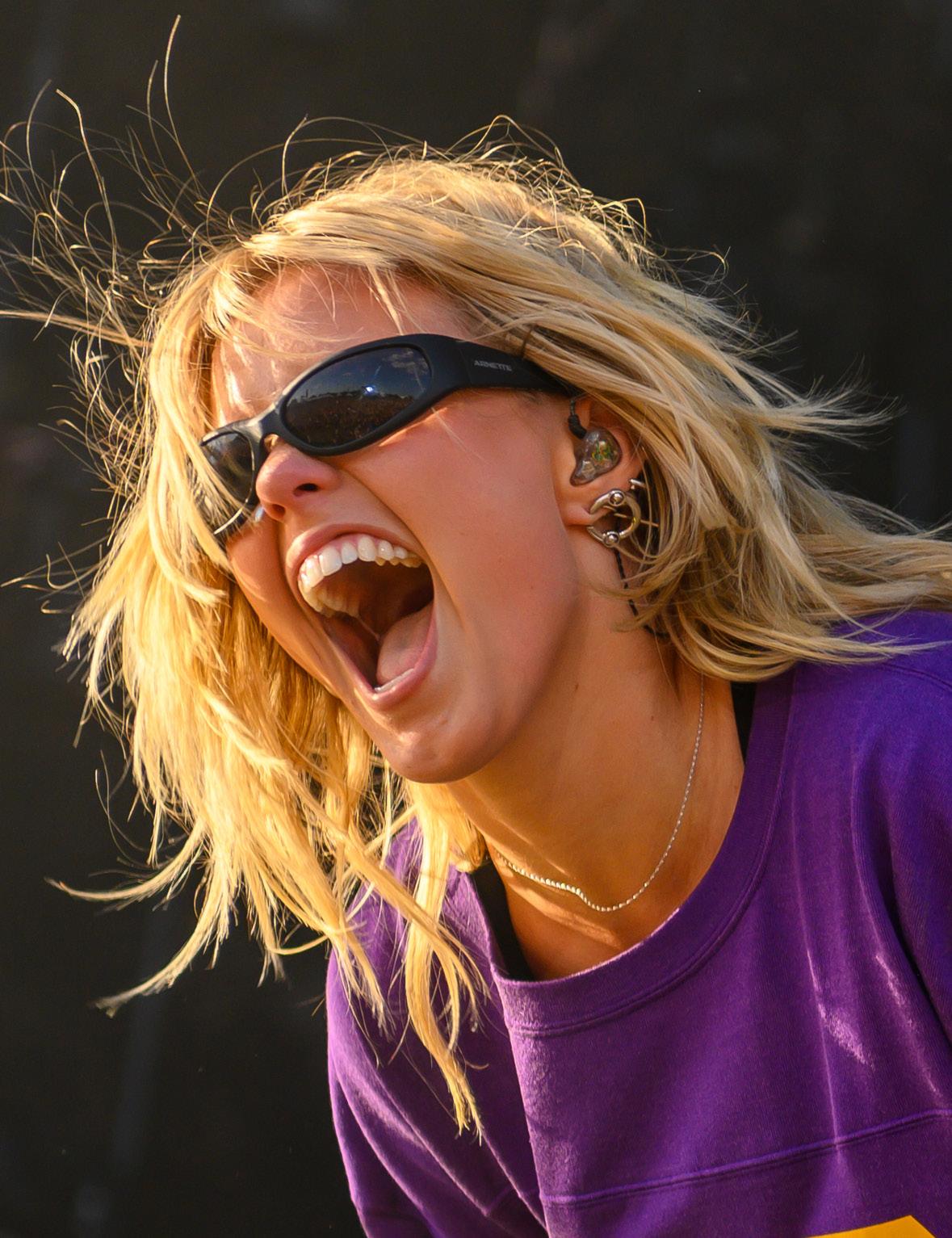


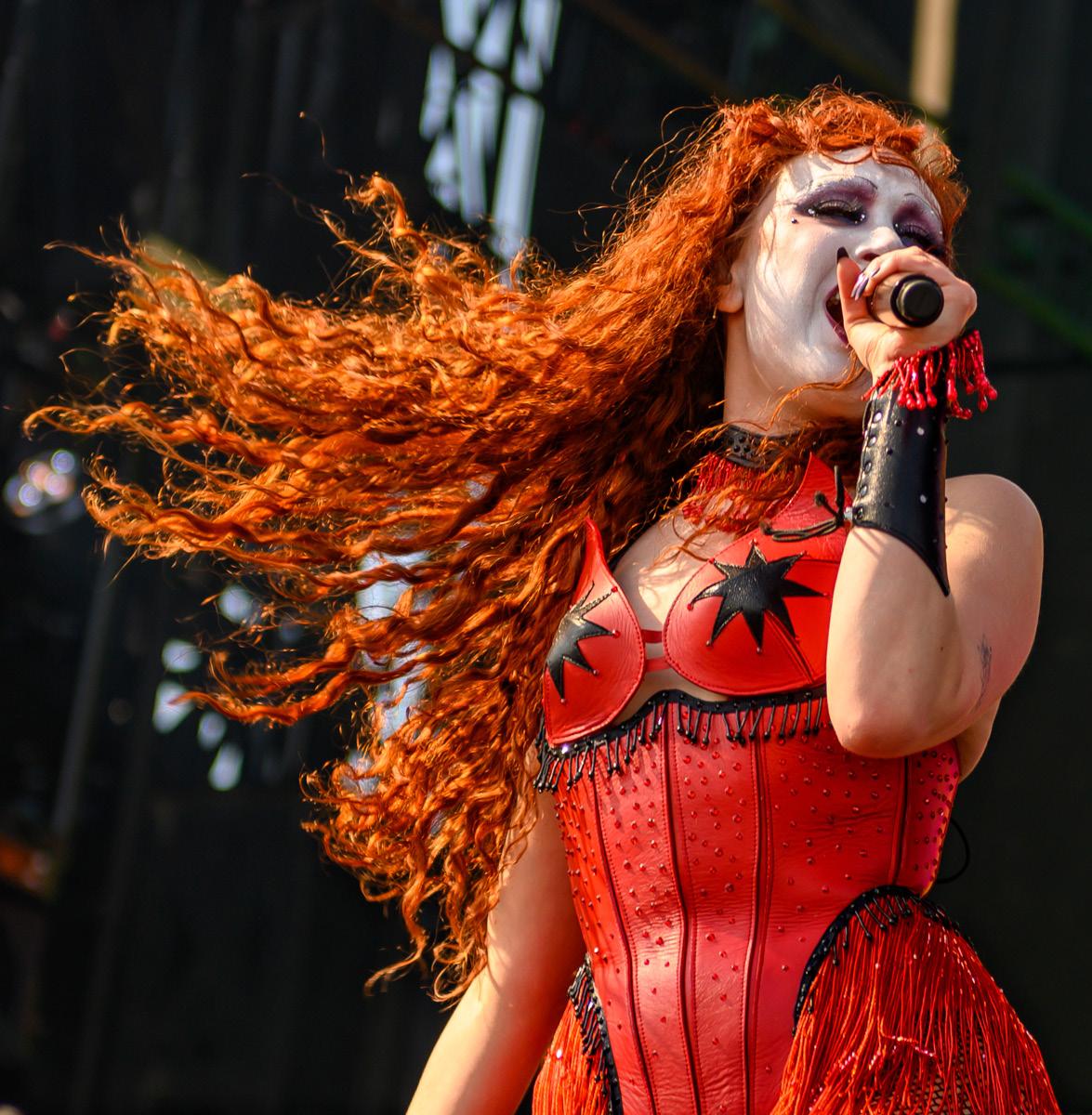





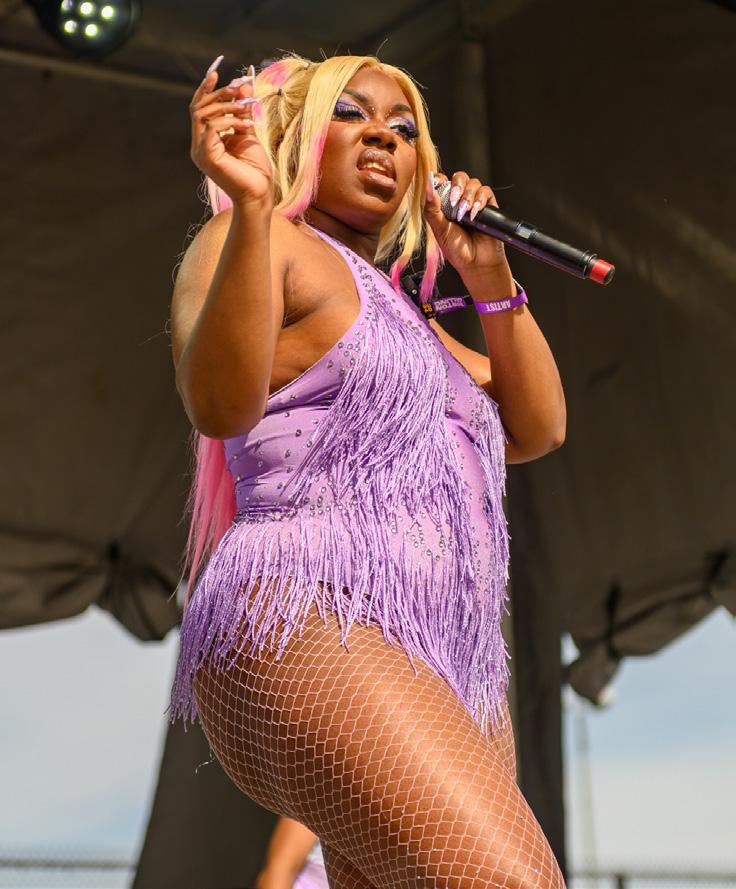
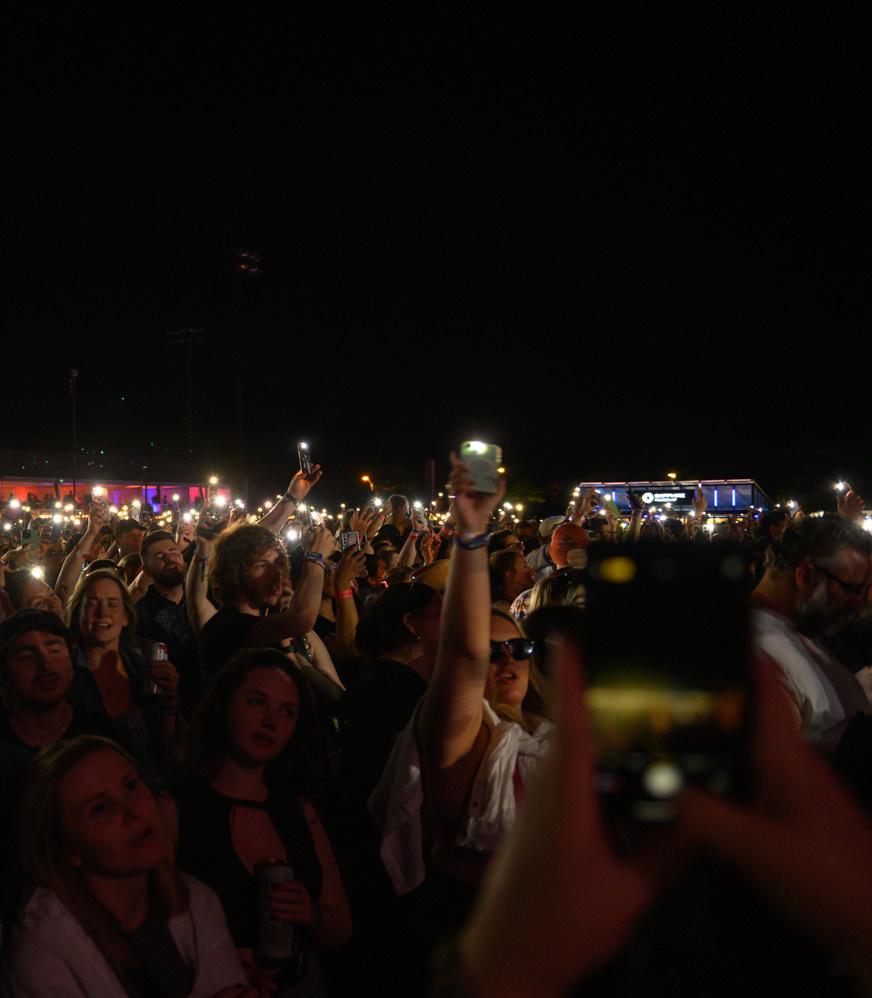



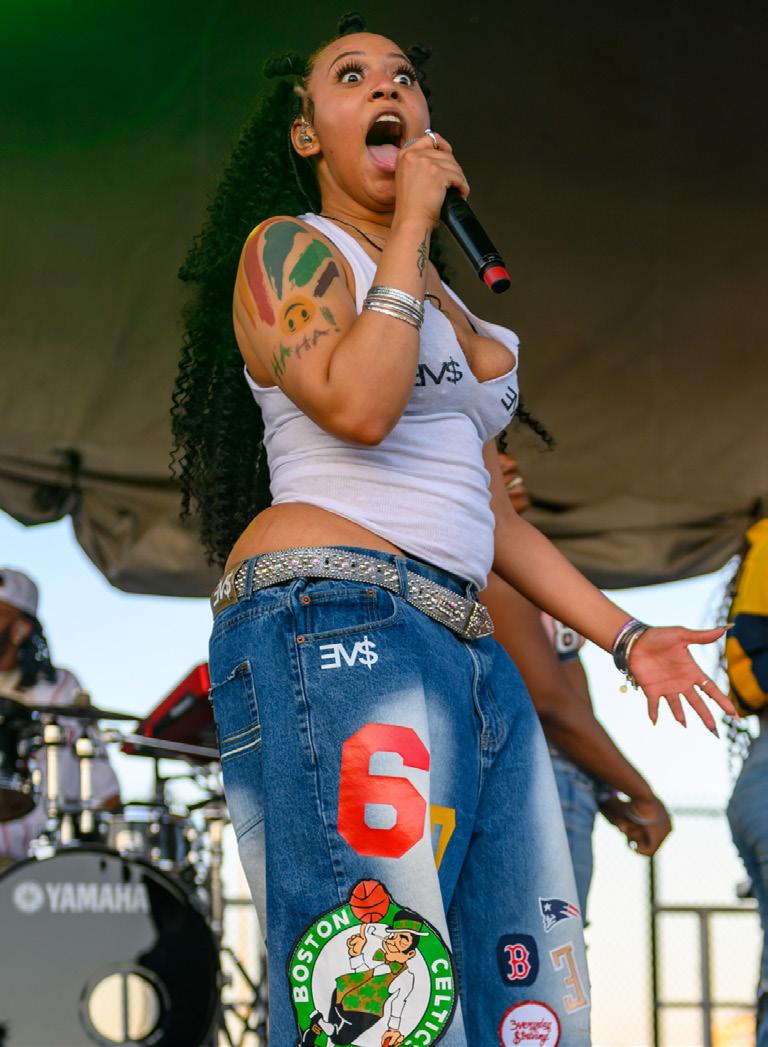
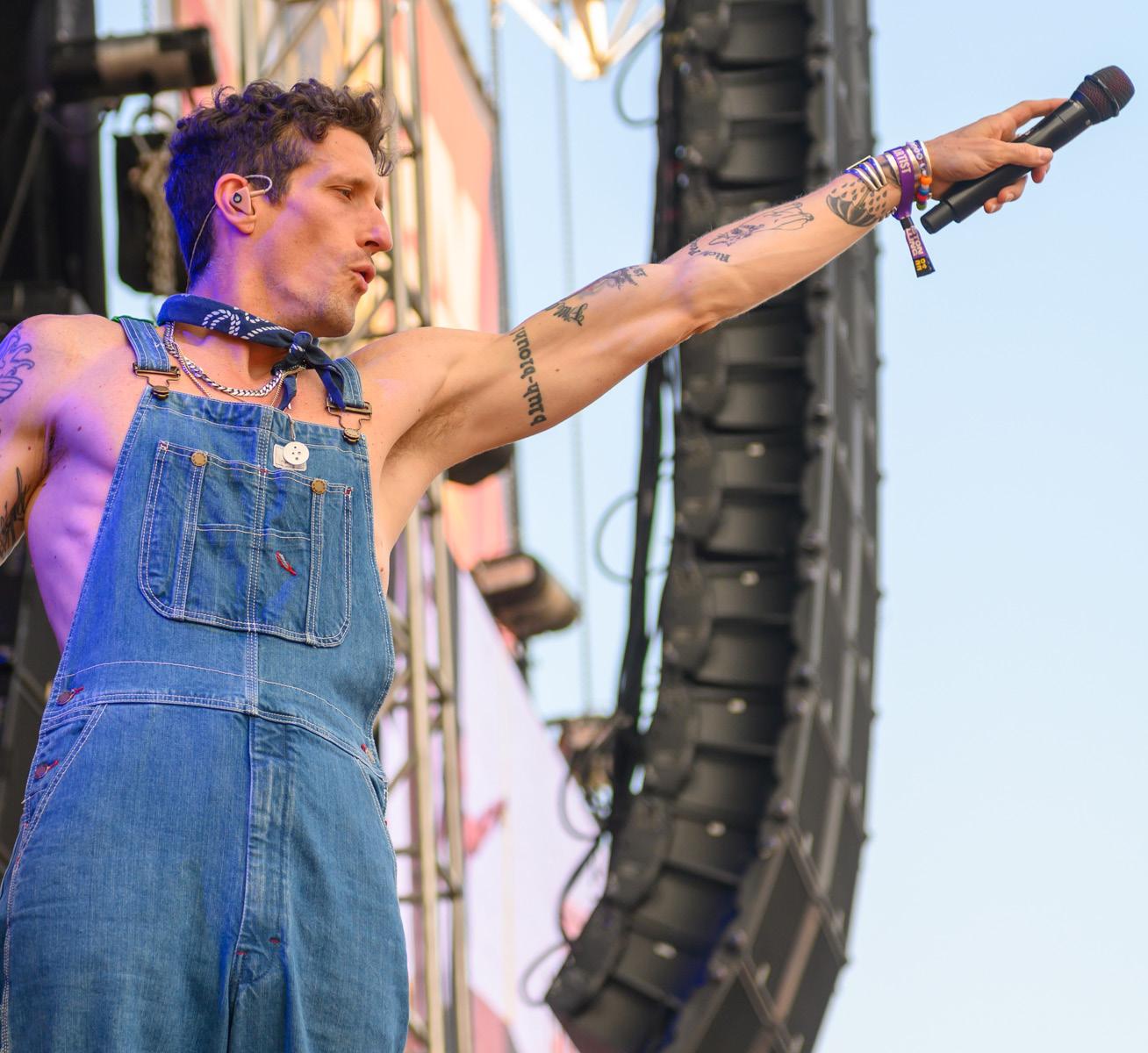


By Daisy Levine Senior Writer
Fans of all ages flocked to Boston Calling from May 2426 as the four-stage festival overtook the Harvard Athletic Complex in Cambridge and featured some of the most sought-after acts in pop music today. Here’s a look at who met, succeeded and failed to reach my expectations.
Reneé Rapp
“In the past I declared I hate Boston,” she said. “That’s not true anymore.”
Reneé Rapp is unapologetically herself and proved that one girl can take over the biggest stage, as long as she does it in style, charisma and cynicism.
In the scope of a traditional rock band, she is that traditional frontman. She takes no crutch from any guitar, keys or silly little tambourine. She fuels off of a consistent marketplace of angsty teenagers and creates an army of dedicated fans competitive with any other headliner around that weekend.
Rapp, however, does sell herself short with her use of her backing tracks, most notably in her upbeat numbers. Lung capacity is wasted on her steady jumping across the stage, thus there are so many layered vocal tracks that I can’t distinguish which is her live voice.
When she stripped the sound back, she proved to have more auditory power than any Friday act. She closed the show with “Snow Angel,” the title track off her first and only album to date. From any die-hard fan to the dad grabbing a beer, no one
could deny the vocal prowess the 24-year-old has achieved so far in her short career.
If you ask me, Rapp is certainly here to stay, and I don’t think she’ll be hating Boston from higher and bigger venues in the future.
Ed Sheeran
There’s something quaint, but ironic, about screaming the songs we all slow-danced to at our first junior high school dances so many years ago — but here we are.
Alone on stage, Ed Sheeran began vigorously strumming his guitar, opening with mega hit “Castle On The Hill.”
Sheeran was a humble, but commanding presence over the thousands coming somewhat ironically to greet him that night. Using the loop machine controlled by his feet, he assured the audience that what we were hearing was completely live. At each show, he creates his own layers of vocals and instrumentals to create the full effect heard in the studio recordings.
Sheeran actually made it seem like a flannel-wearing cliché singing pop songs could still be cool in 2024, even if I’m still shocked he actually said the f-word on-stage.
He sings with a distinguishable vibrato, one that he’s somehow kept with the same eagerness, earnestness, and currentness as he did in his early career. Although no distinctively new song was played that night, Sheeran proved he is not a legacy act just yet.
Telling the crowd stories of his days on the open mic circuit

in London, he worked hard for the attention of the crowd of 20,000 like it was that same crowd of 20 with their backs to him.
The lengthy set hit a lull somewhere in the stint of his Irish folk and white-boy rap conflation, which drew a considerable number of people away from the stage and into the Porta Potties. Still, he reached new highs with covers like “Love Yourself” by Justin Bieber — the song penned by Sheeran — which engaged
thousands in the ridiculous singing of the trumpet solo. My photographer, Molly Potter, asked me if I’m an ‘Ed Head’ now. I don’t know what that is, but I certainly walked away with a bigger smile than I intended to leave with. I can’t stand to be embarrassed when it comes to appreciating a talented frontman.
Chappell Roan I mean, people were screaming her name when there were still four acts ahead of her.
Chappell Roan freed the
audience of anticipation when she arrived at her set dressed like a porcelain doll in cinematic red curls and perfectly sweatproof makeup. Then, moving as if her limbs were independent from her body, Roan gracefully flailed about the stage as an unprecedented number of festival go-ers crammed her midday performance.
Every word of every song, interlude and monologue was chanted back to Roan, who didn’t sacrifice any moment for an ounce of vocal or physical rest. Pacing a setlist of hype music, bubblegum pop and power ballads, Roan’s sexpositive anthems stretched from the barricade to the very distant waffle truck at the back of the lot.
Beyond the ever-catchy “HOT TO GO!” song and dance, Roan also indulged in a Shakespearean ode to a long green-blonde wig creating an overwhelmingly interactive stage show.
However, there’s still a long way for Roan to go by way of songwriting. Based on her Boston Calling setlist, she’s yet to craft the one really great album track, and some of her singles, particularly “Good, Luck Babe!,” were lackluster. Roan’s stage presence is undeniable. She’s proven that she has more staying power than a ghost of TikTok dance past, and deserves all the room in the world to grow into the corseted icon she’s becoming.
The remainder of this article can be found on The Daily Free Press’s website.
‘This stuff doesn’t happen for everybody’: Local artists perform at Boston Calling
By Daisy Levine Senior Writer
“I walked up on the stage, and I was like, ‘Oh my goodness. All these people are here to see us right now.’”
During Cakeswagg’s first freestyle gigs aboard the Roxbury school bus, she never pictured herself pursuing rap music as a career. So, being billed at the Boston Calling Music Festival over Memorial Day weekend was a “bucket list” experience for the up-and-coming hip-hop artist.
Cakeswagg was one of the many performers to hit the festival’s Orange Stage, which exclusively featured New England-based acts.
“Especially when you live here, [Boston Calling] is just one of the things that feel like maybe it could be attainable, but you don’t want to get your hopes up too high,” she said. “And then it just happened.”
Cakeswagg described how “the most beautiful thing about [her] artistry” is her connection to her peers, friends and family who saw her potential before she saw it herself.
“It was big for all of us,” she said. “They believed in me and helped me to believe in myself.”
Her Saturday set embraced collaboration, as she performed alongside her DJ and Bostonbased choreographer of five years, who helped organize numbers for her many backup dancers.
“You want dance to be a part of ensembles and things bigger
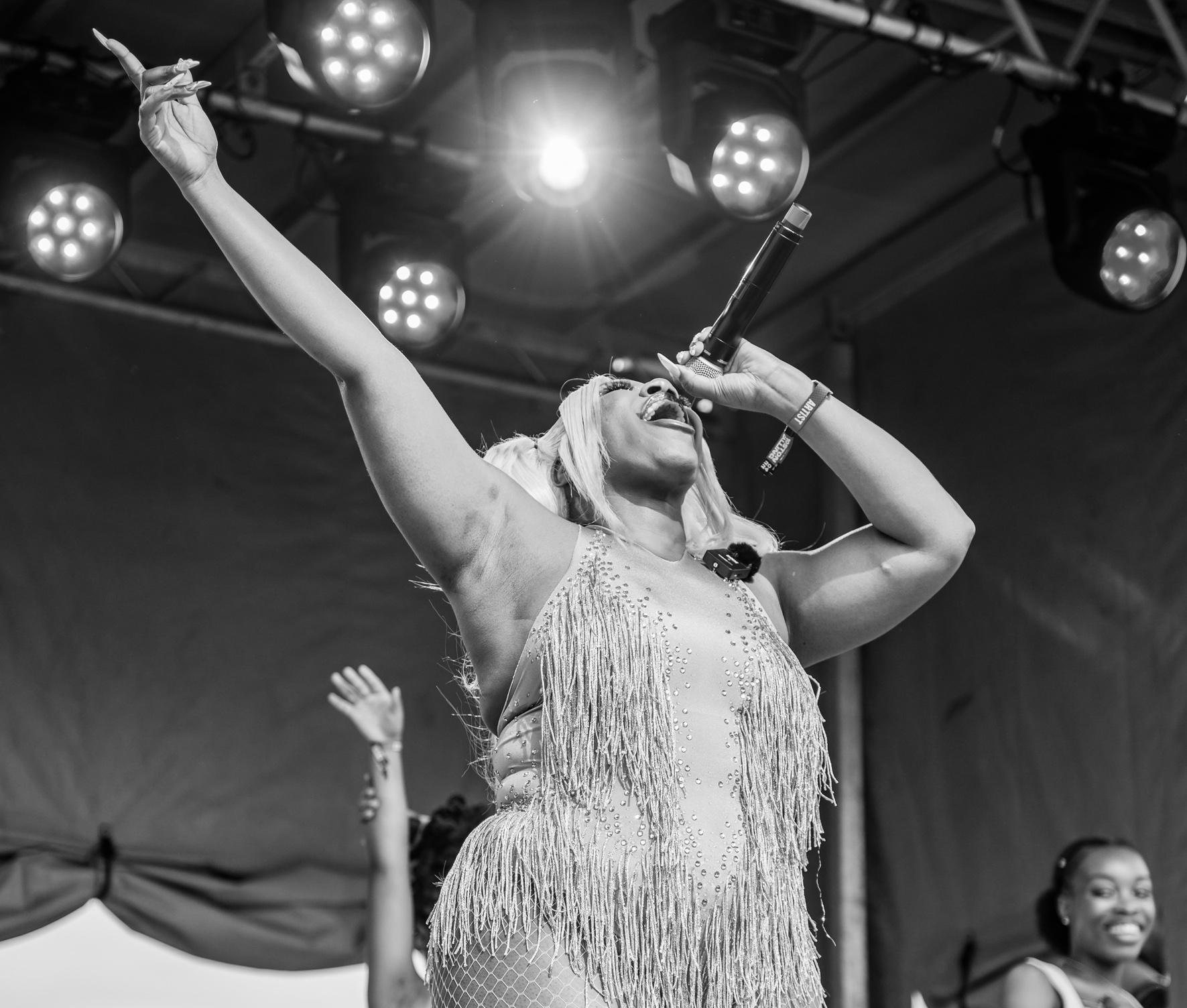
than yourself,” she said. “As performing artists, this is what we want to do.”
For other Bostonians hoping to kick-start their music careers, Boston Calling is an opportunity to break out as an artist beyond the confines of the Charles River.
that “doesn’t exist anymore in music today.” Each show, he said, is simply about stepping out on stage with a band and playing music, without any gimmick.
“I’m very, very grateful for the experiences that I’ve been able to have over the past four years,” he said. “This stuff doesn’t happen for everybody, and I realize that.”
For Madi Diaz, returning to Boston gave her a “really nostalgic feeling” as a former Berklee student herself. Despite performing solo, accompanied only by her guitar on the giant Green Stage, she embraced the opportunity to engage the festival crowd.
“There was a lot of room up there,” she said, laughing to herself. “I feel like we just try to do our best no matter the size of the stage.”
Big stages, however, are not unfamiliar to Diaz. In 2022, she accompanied Harry Styles’ “Love On Tour” arena circuit only to be asked to join his backing band the next year. In April, she opened for Kacey Musgraves on the “Deeper Well” tour.
Fresh off his graduation from the Berklee School of Music and just days before moving out of Boston, singer Kieran Rhodes closed out this collegiate chapter of his life with his Boston Calling set Friday.
helped shape him into the artist he is today.
“There’s not really anybody that’s doing the ‘Piano Man’ thing right now,” he said. “I’m gonna fill that space.”
Rhodes cites musical influences like Billy Joel, James Taylor and Randy Newman, all of whom
Rhodes said he hopes to honor the type of music that precedes his generation, crafting a musicianship
“It’s kind of always fun to come back [to Boston],” she said. “The crowd was really wonderful today.”
Cakeswagg said playing a festival like Boston Calling, especially so early in her career, is something any performer aspires to.
“All the work that we do,” she said. “This is like a dream.”
By Samantha Genzer City Co-Editor
Lavanda, an LGBTQ+ music and arts organization started by Berklee College of Music students, will host its first-ever pride festival, Camp Fest, on June 28 at the Parkman Backstand in Boston Common.
Lavanda aims to support Boston’s queer community by offering a safe space for free expression and supporting LGBTQ+ arts, according to a press release. The festival is free to attend and will feature local queer talent and intimate community bonding.
Emma Whitney, a senior at Berklee, founded Lavanda last fall after she and her former drag band, The Funcles, had a “really negative experience” at a few venues.
“I’ve noticed how many queer spaces are focused on substances, and I’ve heard so many stories of LGBT spaces that are focused around alcohol having really sketchy and bad things happen,” Whitney said. “To create a safe space, you have to be able to bring your whole self to it.”
Unlike many pride events, Camp Fest will be substancefree, making it less “adultcentered,” said Shea Dewan, a junior at Berklee and member of Lavanda’s content creation team.
Dewan said substance-focused events don’t “feel the safest” to
her as a younger person. She said she hopes Lavanda’s pride festival makes people who are under 21, sober or curious about being sober “feel more at ease and in place.”
Whitney said the vision she had for the festival was based on the idea of a “big gay summer camp.”
Camp Fest will feature performances by local LGBTQ+ artists and products from LGBTQ+-owned vendors, including upcycled clothing, prints, pottery and jewelry, according to the press release.
Attendees will also have access to crafting kits, coloring pages and mocktails.
Colleen Rhatigan, a senior at Berklee and another member of Lavanda’s content creation team, said she had attended a previous festival where vendors were mostly informational.
“What sets us apart is we’re specifically focused on artists, and so our vendors are all artists, people selling things that they’ve made,” Rhatigan said.
The performance lineup includes local student artists Chrysalis, Lauren Jean, Christian Inman, S and R, Good Judgment and Kühlname. Kris McCarthy, a senior at Berklee and member of Lavanda’s executive board, will also perform music they wrote this past year.
By inviting college students to

perform, Lavanda provides upand-coming queer artists with the opportunity to showcase their talents and gain performance experience, said Grace Harkey, a senior at Berklee and talent buyer for Lavanda.
As a brand new organization founded by full-time students, Lavanda struggled to access
sponsorships for the festival, Harkey said.
To raise money, Lavanda held a crowdfunding campaign on Indiegogo and organized creative solutions to fundraise, such as selling crochet items, custom coloring pages and friendship bracelets, Whitney said.
Besides raising money,
The transition to college can be stressful. Moving out, moving in, starting classes, making new friends — it’s an experience that is hard to find the humor in. However, Boston University offers its own solution: a myriad of student-led comedy clubs where there is a place for everyone.
After all, what better way to relieve some of that stress than with a good laugh? Here is a list of some of those quick-witted clubs to keep an eye out for.
Liquid Fun
With free monthly shows, Liquid Fun is a sure-fire way to get in your dose of laughter. The group performs both short and long-form improv comedy for the BU community, as well as holding open practices every Sunday from 7-9 p.m., where no experience is required to participate, according to their website.
“One of my favorite things about being at this school is having this community,” said Sophia Keohane, a sophomore at BU and member of Liquid Fun. Keohane came into BU knowing she wanted to join Liquid Fun and joined the troupe during her first semester of freshman year. She began performing during her second semester, while also holding the secretary position.
Each show has a different theme attached to it and draws a packed, excited audience, according to Grace Pitts, a sophomore at BU and a frequent Liquid Fun audience member.
“It’s a buzzing, electric atmosphere,” she said. “I genuinely love going to the shows at the end of the week and just being able to step away from all the academics and really enjoy myself.”
Liquid Fun has been bringing smiles to the BU community since their founding in 1997. One of their specialties is a 24-hour marathon show in celebration
of the annual Boston Marathon.
During that day, the group brings in other comedy troupes at BU and other Boston-area groups to perform while the event gathers donations for the Greater Boston Food Bank.
“Just go for it. Go to open Sundays, go to that audition, go to that club meeting,” said Keohane.
“Because you are going to meet so many fantastic people who are
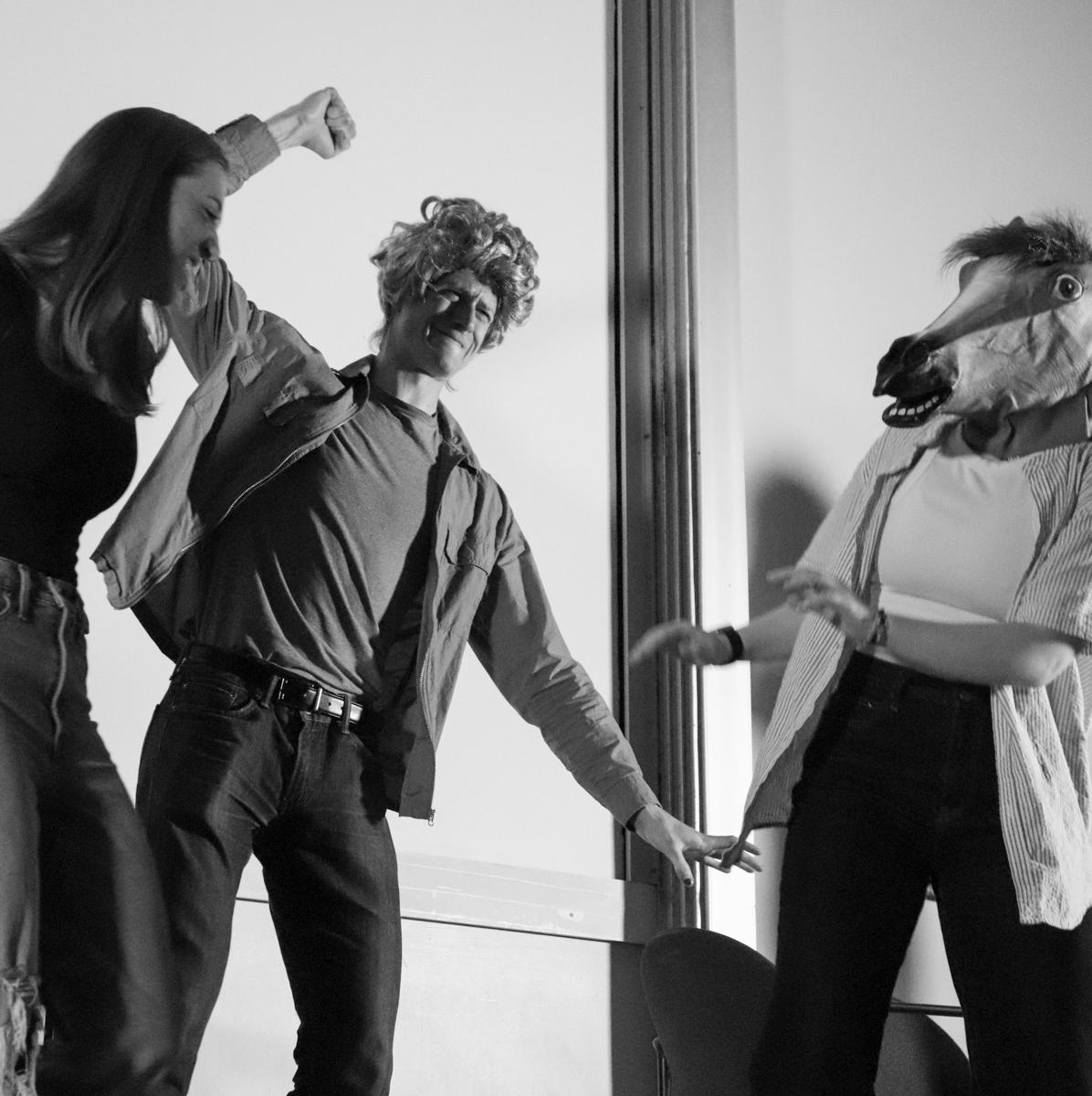
Lavanda has also struggled with gaining respect from the Boston community, Whitney said. She said she thinks as an organization primarily composed of young, feminine-presenting and queer individuals, Lavanda often isn’t viewed seriously by their “cis male counterparts.”
“A lot of people think we’re just doing a cute, little, fun gay thing, but we are working so much and so hard to make this happen,” Whitney said.
Whitney said she hopes Camp Fest creates “more traction” for vendors, artists and Lavanda itself.
Harkey said since Boston Common is such a public space, many people are likely to come across Lavanda’s festival.
“We really want people to know that we’re here,” Harkey said.
Despite the challenges, Whitney said Camp Fest marks the beginning of many more events from Lavanda. She said she and the team are hoping to host another pride festival next year. They have ideas for future events including open-mic nights, music workshops, craft circles and galleries.
“[Lavanda is] really about celebrating intimate, platonic relationships,” Whitney said. “It’s about hanging out with your friends and loving your queer family that you’ve made.”
there to support you.”
Slippery When Wet
Another fun-filled option is BU’s premier sketch comedy group, Slippery When Wet. As the oldest running comedy group at BU, they recently underwent a name change from their previous title, “Slow Children at Play,” but their dedication to bringing joy has stayed the same.
The group puts on two to three shows each semester, according to Bradley Tavana, a sophomore at BU and a member of the troupe. He said that their performances are based on how quickly they can write and rehearse sketches.
Tavana joined Slippery When Wet his second semester of BU, and said he hadn’t expected to get involved in the comedy scene at all.
“The only thing you can regret is not doing something,” said Tavana about getting involved as a new student at BU. “Worst case you’re only going to get better. You’re only going to learn.”
Slippery When Wet also posts their sketches on their Youtube channel. They have also performed at sketch comedy festivals around the country and have participated in Liquid Fun’s 24-hour marathon show this past semester.
Stand Up Club
Just as the name suggests, BU Stand Up club is a perfect place to hone in on your stand up skills or try out a new form of comedy.
This past semester, the club met one hour a week on Wednesdays and fostered a “super supportive, super great environment” Keohane said, who is also a part
of Stand Up. She said the group’s environment allowed her to grow very quickly, even though she had joined “on a whim.”
A speciality of BU Stand Up Club is their frequent Queer and Femme open mic shows, which allow for non-club members to perform. Even outside of live performances, Stand Up Club allows for opportunity for students to get involved. This past semester, Stand Up Club partnered with WTBU allowing for a unique listening experience with live stand-up comedy on radio, which makes for a unique experience for audience members and performers alike.
As BU’s only troupe that performs original sketch, improvisational and video comedy, the Callbacks will surely have a joke for everyone. Both long and short-form comedy have been produced by this group since their founding in 2009.
Open auditions for various roles in the group are usually held in the Fall semester and are open to any community members interested in multimedia comedy forms — but the fun does not stop there.
Every semester, the Callbacks perform in at least two full-length live shows, which are usually free to attend, providing laughter as the best medicine in an otherwise bustling school environment. So, on your next visit to Splash, keep an eye out for these comedy clubs. They will surely tickle your funny bone and provide a muchneeded break from the bustle of college life.
By Analise Bruno Senior Columnist
Dear Abby: I’m coming to college and am looking for love! Okay, I also want to get an education, but I am interested in diving into the dating pool. I just don’t want to drown. Do you have any tips on how to stay afloat?
College campuses are filled with young adults looking for two things: an education and some action.
I mean, you can’t pack thousands of students into one tiny little campus and expect them to not want to pursue one another. One half of it is natural instinct, and the other half is that having a crush keeps things interesting!
But, I still think the college dating pool is a lot more nuanced and complex than the ones we find in high school. Mingling as a legal adult with a lot more freedom can be just as exciting as it is dangerous.
Despite what the movies may show, there are a lot of dos and don’ts when it comes to college dating, and Ask Abby is here to give you her takes after semesters of observation and experience.
The frat basement is not where you are going to find the love of your life
The first night I moved into my freshman dorm, I did what all freshmen do –– test the waters of Allston by exploring the fraternity houses. In many ways,

it’s a rite of passage, so I’m not trying to deter you entirely. What I’m saying is this: Use your brain!
I’m sure there are some amazing fraternity brothers out there, but frats wouldn’t have their universal sloppy reputation for no reason.
All the rumors are true. The basements are grimy, it gets really hot when everyone is packed together like sardines and if you look to your left, you might just see two people making out.
These parties are all in good fun, but they’re not exactly a hub for meaningful relationships.
Unfortunately, the stereotypes are accurate. The hookups and makeouts that happen there are part of the party culture more than anything else.
With that being said, I think it’s
important to not feel pressured to do anything you don’t want to do, even if it is all for “fun and games.”
Also, always know your worth! I’ve seen some of my most intelligent and beautiful friends get hung up on a guy who barely respects their existence outside of the frat house.
You have a personality and a profound sense of intellect. Don’t leave those behind at the basement door before you head in.
Age gaps can be tricky
There’s a lot of overlap in college, perhaps more than you would find in high school, when it comes to ages. The youngest freshmen are about 18, while the oldest seniors are 22. Add graduate students to the mix and you’re looking at a 24+ dating
pool. I feel that there’s a perception in college that you don’t really need to ask anyone their age before pursuing them, because for the most part, we are all legal adults.
The primary issue with age gaps is the disparity in maturity.
Everyone makes fun of that one senior in high school dating the freshman because the mindset of a 15-year-old is extremely different from an 18-year-old about to graduate.
In college, the boundaries are more fluid. It’s not uncommon for a sophomore to be dating a senior, or a junior to be dating a grad student.
Why? Because of the similarities in maturity and mentality.
My biggest piece of advice is this: Don’t get taken advantage of and know what point of your life you are in. Be mindful of others’ intentions and how they interact with you.
Don’t count out the high school sweetheart, maybe
A lot of people go through a “pre-college breakup,” which is usually a pre-planned initiative to split before the start of the school year. This is commonly done in hopes of achieving the “full college experience,” which may include experimental hookups and other fun nights out.
Personally, I think it is possible to remain with your high school sweetheart through college. In a sense, I get a bad feeling about the thought of breaking up just
to explore your options. Aren’t you supposed to love the person unconditionally? Plus, staying in touch is a breeze with the added advancements of technical communication.
But, the reality is that a lot of people end up splitting up during the fall semester of their freshmen year. It’s not often for petty reasons, but rather because couples can begin to drift apart as they gain a greater sense of independence. It’s perfectly fine to be in different stages of life, because at the end of the day, you should never be entirely codependent on another person’s affection to thrive.
Where can you find the right person?
Now, for the age-old question: Where can you find that special someone? Everyone likes to say that there’s never any contenders within their own major, but they can’t all be lying!
I’ve had friends who enjoy finding their lovers through apps, and I’ve had others who met their current significant other through a club they joined on campus. Both are good options for finding someone you might be compatible with.
In my experience, don’t count out the person sitting next to you in that random class you’re taking to fill a few HUB units. You probably have a lot more in common than you think with the strangers sitting beside you in some of your smaller classes.
Just try saying hi. Who knows what could become of it?
‘Home is where I want to be, but I guess I’m already there’
By Ruby Voge Associate Lifestyle Editor
Not many people can say that they’ve written two articles about the song, “This Must Be the Place (Naive Melody)” by Talking Heads.
Before I can start to explain why I am one of the few, I need to rewind four years to my junior year of high school.
On a brutally cold and windy day in February 2020, I toured Boston University for the first time. I was 16 years old with no knowledge of what was to come — Zoom classes, canceled proms — we all know the drill.
Yet, even through the 20 F real-feel, I could picture myself walking down Commonwealth Avenue, drinking coffee at Pavement and riding the T. I couldn’t exactly put it into words at the time, but it was just a feeling.
A feeling that I belonged among the throngs of students, who I watched file into Marciano Dining Commons and Mugar Memorial Library on my tour.
That night, I came down with a suspiciously COVID-esque illness that left me unable to complete my President’s Day Weekend college tour. Instead of continuing to visit nearby campuses like Tufts, Brandeis and Vassar, I sped home to New Jersey to recover.
Less than a month later, I’d be bidding adieu to my high school for almost a year. My sub-zero tour of BU would end up being the only one I took before I began applying to colleges during the depths of the pandemic.
During the application process, I tried to avoid having a “dream school” so I wouldn’t feel too disappointed, but in the back of my mind, I knew that’s what BU was for me. So when I saw the word “waitlist” in my application decision, I was crushed. Soon enough, I declared my enrollment to American University as a sociology major.
With a campus that took a maximum of seven minutes to walk from end-to-end and a population that was primarily made up of future senators and lobbyists, I knew AU wasn’t for me from the beginning.
However, by the time I finalized my decision to leave, it was too late to start transfer applications for the following academic year. Instead, I chose to attend community college for my sophomore year and apply to schools for the Fall 2023 semester.
As a procrastinator till the very end, I finished my transfer application at 10 p.m. on the day of the deadline. When my response from BU came in early May, I was laying in bed, ill once again with a mysterious stomach flu. Even in my less-than-ideal state, I still had the energy to scream with excitement when I saw the digital confetti raining down from the acceptance letter.
This excitement was soon met with an unwelcome companion: fear. As a transfer student, it wasn’t the normal first-day jitters that were plaguing me. I was a pro in that aspect, consideringI already had two of those under my belt.
Instead, I couldn’t stop
worrying that I would be “behind”, whether that be in completing my major, making friends or joining clubs.
Not only was I a transfer, but I was new to journalism as well, which I’d started to pursue while attending community college. I feared I’d be lumped in with the freshman class or rejected for my lack of experience.
I was happy to learn that not only did no one care, but that BU was full of hundreds of other transfer students. Other than the unfortunately required experience of having to take COM CO101 as a junior, I never once regretted changing my major. BU made it easy to throw myself into a variety of COMrelated clubs, where I could work on building my portfolio and meet new friends at the same time.
A few weeks ago, I went to see “Stop Making Sense”, a Talking Heads concert film, at the Brattle Theatre in Cambridge to celebrate my 21st birthday. I shouted, sang, ran and jumped along with “Burning Down the House” and “Life During Wartime”. I also premiered some absolutely absurd dance moves that should only be seen in the darkness of a movie theater surrounded by my friends and fellow music lovers.
When the film and my heartrate began to slow down with the band’s performance of “This Must Be the Place (Naive Melody)”, my eyes began to fill with tears. I’d always loved the song’s beautiful lyrics and David Byrne’s earnest rendition, but this time they rang true with a newer level of emotional depth. I felt an honest sense of
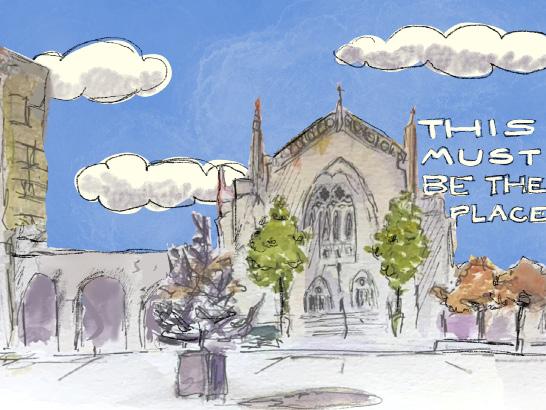
connection and community that I’d never experienced before.
“Hi-yeah, I got plenty of time / Hi-yeah, you got light in your eyes / And you’re standing here beside me / I love the passing of time.”
“Home is where I want to be / But I guess I’m already there.”
Two years before, I was relieved to start a new chapter in my life, but was confused and scared about spending a year at home attending community college.
A year before, I was anxiously celebrating my circuitous acceptance to BU.
On my birthday this year, I was finally at BU. My dream school. After four years of the unexpected, I still ended up where I was meant to be.
It may sound cheesy, but it’s all true. To all of the incoming freshmen, transfer students and incoming seniors — I still can’t believe that I’m one of those — you have plenty of time. You are not behind. Learn to enjoy the passing of time and try not to rush into a life that you feel others expect of you. If all else fails, dancing and singing with friends is always a good idea.
My college experience has been far from orthodox. I’ve attended three schools in three years, lived in Washington, D.C., at home in New Jersey, in Boston and changed both my major and minor.
But today, almost four and a half years since I first stepped foot on Commonwealth Avenue for the first time, I can confidently say that “I guess that this must be the place.”
By Lavanya Menon
Contributing Columnist
Rules of personal finance have existed for centuries now. Budgeting, saving and debt management are some of them. But how many college students understand and implement these in their daily lives?
A hub brimming with students from all over the world, Boston boasts 35 institutions for higher education, according to the Boston Redevelopment Authority.
But living in this fast-paced city comes with its fair share of expenses — food, rent and activities, to name a few — that can become difficult to manage for anyone, especially college students living on a budget.
As a college student myself,
I know that I am speaking for almost all of us when I say that living on a college budget is tough. Boston’s rising housing costs and the country’s increasing inflation make maintaining our finances even more stressful — and more important.
When I first came to Boston University, I had no idea how to manage my own finances. Through loads of research, time and help from my dad — who knew a lot of financial terms I couldn’t understand — I figured out how to spend money intelligently and to budget in a way that worked for me. This knowledge provided me with confidence in my ability to independently make financial decisions.
However, not everyone has the
resources or time to understand personal finance on their own — which is why universities should make personal finance classes mandatory for all students of all majors and backgrounds.
My studies of economics throughout middle and high school played a big role in helping me understand finance. Knowing how the economy works can help you make informed decisions about money. Because I had the luxury of learning about economics at an early age, I had a solid foundation to learn personal finance.
Financial illiteracy is a huge problem for our generation today. Gen Z demonstrates the lowest understanding of personal finance, with only a 38% financial literacy level, according to a 2023 study

from Money Zine. By making personal finance courses mandatory, institutions can ensure their students encounter fewer financial risks after graduating. Providing classes on topics such as borrowing, budgeting, student debt, credit scores and investing will help build crucial skill sets for adults entering the corporate world.
At both public and private nonprofit universities, 55% and 57% of students, respectively, have student loans and educational debt, according to Forbes.
Studying financial topics better prepares students to handle their own financial needs so they’re less likely to depend on others. This would decrease the burden on students paying back their loans, an issue faced by many young adults today.
Greater knowledge of personal finance would prepare students to deal with unexpected economic downturns, such as the Great Recession, a national financial crisis that lasted from 2007 to 2009.
We should not repeat history, we want colleges to realize that teaching financial concepts early on can help students avoid potential money struggles. Through courses on financial planning, students can learn how to earn passive income and protect their money through insurance. Courses like these can provide a student the tools to pay their debt sooner.
Changes to the economy affect everyone, not just business and finance majors. When inflation is high, the money sitting in your
savings bank account decreases in value. This loss is even more harmful to a college student living on a budget.
To avoid falling into debt, it’s crucial for students to know how to manage their money and respond properly to inflation. As inflation worsens, university education loses value. Students can spend years saving for college, and even more paying back the loans, for an education that means less. Inflation also increases the cost of other expenses, like housing and food.
One powerful tool to help reduce the monetary harm of inflation is investing. Many students don’t realize the power of investing — either they’re scared of the market, or they don’t know where to start. By mandating courses about the stock market and investing, universities set their students up for financial success. The earlier you learn to invest, the sooner you’ll be able to increase your disposable income to face adverse financial situations.
Investing leads to an overall growth in the economy, which, in turn, increases the economy’s gross domestic product and employment rates. Enforcing financial literacy courses would benefit not just individual students, but the whole economy.
Investing leads to an overall growth in the economy, which, in turn, increases the economy’s gross domestic product and employment rates. Enforcing financial literacy courses would benefit not just individual students, but the whole economy.
Student journalism is a valuable resource — the on-campus protests prove why
Since April, pro-Palestine protests and encampments have cropped up at multiple universities nationwide. These encampments consist of hundreds, if not thousands, of students leading pro-Palestinian chants, sit-ins and other methods of protest, calling for their institutions to divest from Israeli support and urge the United States government to advocate for a ceasefire.
Students at Columbia University screamed outside of their president’s house to protest. Meanwhile, in Boston, students at universities such as Northeastern University, Emerson College, Massachusetts Institute of Technology and Harvard University have taken part in their own on-campus protests and encampments. These demonstrations are closely monitored by their campus newspapers, The Huntington News, The Berkeley Beacon, The Tech and The Harvard Crimson.
While these protests have placed student voices on a nationwide pedestal, college journalists across the country have received particular attention. Their coverage of the protests on social media and in some of the nation’s most popular newspapers — like New York Magazine’s collaboration with the Columbia Daily Spectator — has drawn attention to the vital function student journalism serves, both within and beyond the limits of college campuses.
The Huntington News and The Berkeley Beacon, for example, have chronicled statements from both protesters
and administration to deliver well-rounded perspectives and keep students informed. As fellow members of the campus community, student journalists are more likely to get through to protesters as someone who wants to share their story, not invalidate their message.
Protesters may hesitate to speak to journalists from large news outlets out of fear of their words being misinterpreted or mocked by the readership.
Speaking to a student journalist, however, might make protesters feel safer with the knowledge they are speaking to a fellow student and reaching an audience of their age demographic.
As protests progress, drawing responses from administration — and, in some cases, police — student journalists churn out news diligently and quickly. These protests have increased reliance on student journalism, demonstrating students’ concerns for their campuses and demand for reliable, objective news.
College journalists’ student status allows for real-time journalism on campus grounds — privileged access other news outlets might not have.
Columbia’s student radio station, WKCR 89.9FM NY, reported live from campus on April 30 as pro-Palestinian protestors and police officers clashed inside Hamilton Hall, a Columbia academic building.
The radio coverage received more than 20,000 listeners — so many that they briefly overwhelmed and shut down the livestream. The students’
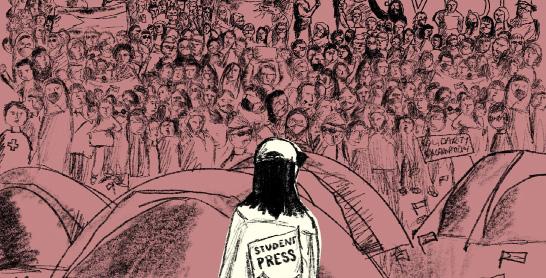
reporting not only provided instantaneous coverage of the protests, but also offered perspectives from the demographic most affected: Columbia’s students.
Members of collegiate newspapers report for major news outlets, disproving any doubt about student journalists’ abilities. The work that student journalists do is just as credible and valuable as that of professional journalists — and it should be treated as such.
Student journalists have even gotten detained simply for on-site reporting. Journalists deserve protection and respect, as they seek out the information necessary to properly report on events which affect the institutions they know best.
Organizations such as the Society for Professional
Journalists and the Student Press Law Center are working to protect student journalists. In New Hampshire, a prosecutor declined to press charges against two student journalists from Dartmouth College after 15 press rights organizations, including SPLC, petitioned in support of the students’ freedom of expression as members of the press. Self-identifying student journalists are not the only ones covering protests. Social media has become not only a quick source of updates, but also a tool for citizen journalists. Through social media, all students have the potential to serve as journalists by documenting events with real-time updates, videos and photos.
As social and political unrest continues to pop up on our feeds
— including that beyond college campuses — it is vital to continue to follow the news, from both professional and student outlets alike. This allows for continued appreciation of citizen and student journalism, and puts a spotlight on truthful, daring and authentic reportage.
The vast impact of these protests proves the extraordinary capabilities of young journalists, who are taking the initiative needed to cover moments that become history. Student journalists are vital to not just their institutions, but to the protection of free speech on college campuses — and journalism as a whole.
This Editorial was written by Opinion Co-Editor Hailey Pitcher.
BY BRENDAN GALVIN Senior Writer
At first glance, a trip to Fenway Park with a group of friends can be expensive. The cheapest ticket for a game in June 2024 sits at $18, but when searching for three or four seats together, prices jump to almost twice as much per ticket.
Add transportation, parking and the inevitable Fenway Frank for $6.25, and a trip to the ballpark becomes a hefty expense for the everyday fan.
Luckily, the Red Sox offer a special student discount program for college students, known as Student 9s. The discounted $9 ticket is available on the Red Sox website for any student registering for the program.
“I have used it quite a few times,” Zachary Mathews, a senior at Boston University said. “It’s very convenient because I don’t have a lot of money.”
Mathews said he first heard about the ticket offer on his tour of BU as a prospective transfer.
“Once I got here, I took advantage of it the first time they came out. I’ve been kind of going ever since,” he said.
Once students enroll in the Student 9s program, they have the option of signing up to receive notifications via email or text, as the discounted tickets are only offered for certain games, according to WBZ News.
With the student discount ticket program comes a shift in the demographic of fans and the overall atmosphere at the ballpark.
Mathews compared Fenway Park to his experiences at the San Francisco Giants’ Oracle Park.
“Oracle [Park] is a lot more laid back and very scenic,” he said. “A lot of older people, as opposed to Fenway, especially where the Student 9s are, it’s a lot more hectic, a little more fun.”
Most Student 9 tickets are in the bleachers in right field and provide a unique experience for fans.
“I’m not really a baseball fan, I just went for the social experience,”
Ahemed Bullo, a junior at BU said. “It was good, I enjoyed my time and watched a good game.”
Bullo said going to Red Sox games, even as a non-baseball fan, can be an escape from the busyness of college life.
“[The games] give you something to get away from,” he said. “If I have a stressful week, I think going forward I’m going to implement going to a Red Sox game, even if it’s just by myself to release and just come back down to earth and chill out for a little bit.”
Another reason why visiting Fenway Park is so easy for BU students is its proximity to campus.
“I live right on the Green Line so that you can take it straight there,”
Margo Stanton, a 2024 BU graduate said. “I’ve also walked, and the BU Bus goes close by so there’s a lot of ways to get there.”
The Kenmore Green Line Stop and the BU Bus stop outside the Metcalf Center for Science and Engineering both offer easy access to and from the ballpark.
At the start of June, the Red Sox sit in third place in the American

League East division, eleven-anda-half games behind the divisionleading and rival New York Yankees. They sit three-and-a-half games back of the third and final Wild Card spot.
While many experts thought the team would finish last place in the division for the third straight year, the Red Sox find themselves in the heat of the playoff race mid-season.
The Red Sox have blown expectations out of the water despite facing several injuries throughout the first 50 games of the year. Shortstop Trevor Story dislocated his left shoulder in the
team’s first series of the season in April and starting pitcher Lucas Giolito, who the team traded for during the offseason, is out for the entire season after partially tearing his UCL.
The team also signed closer Liam Hendriks, who is recovering from Tommy John surgery and may also miss much of the 2024 season. First baseman Tristan Casas and left fielder Masataka Yoshida have also missed time due to injury.
Despite significant losses from the injury bug, the team continues to play well, thanks to a successful change in pitching philosophy that
has led to fewer fastballs and has kept the team at a .500 winning percentage.
Regardless of the team’s performance, the Red Sox still have support from the student demographic within their fan base.
“The tickets are super cheap, you can go with friends, and it’s a really fun sports experience, especially with BU because we don’t have a football team,” Stanton said. “Even before and after the games, the streets are full, and there are a ton of students and a ton of people, so it’s definitely a really cool college experience.”
BY CHLOE CRAMUTOLA Sports Editor
Even in the offseason, Boston University’s NCAA Division I athletes work to improve their game ahead of the upcoming fall season. While coaches and current players drill team values into their training, the recruiting classes look to build upon those principles to fit and thrive in the group dynamic.
“It’s obviously a pretty big jump from high school soccer to college soccer,” said freshman midfielder/ forward Olivia Avellar, one of eight recruits joining the BU women’s soccer team this fall. “But we’ve all been training in the offseason playing club soccer, so I think I’ll be ready, and just like the rest of the team, I’m going to continue to try to improve myself.”
Although the fourth-seeded Terriers (7-7-6, 4-3-2 Patriot League) lost to Bucknell University (12-45, 5-1-3 PL) in the Patriot League Tournament semifinals, Boston University scored a cumulative 31 goals and 91 points –– the most in a single season since 2015.
Two athletes were appointed to the NCAA Division I 2023 NEWISA All-New England Team, with sophomore midfielder Giulianna Gianino recognized on the Second Team and senior forward Abigail McNulty claiming Third Team honors.
Building on these accolades, the Terriers are training vigorously to strengthen resilience and problemsolving skills as a unit.
“This is a team that’s very hungry,” women’s soccer head coach Casey Brown said. “Our training environments have gotten even more intense, and I think there’s a real fire in their bellies and a real clear vision of what we want to achieve this fall.”
The same is true for the BU men’s basketball team (16-17, 10-8 PL), which finished second in the conference. Similarly to women’s soccer, men’s basketball felt the heartbreak of elimination in the PL semifinals.
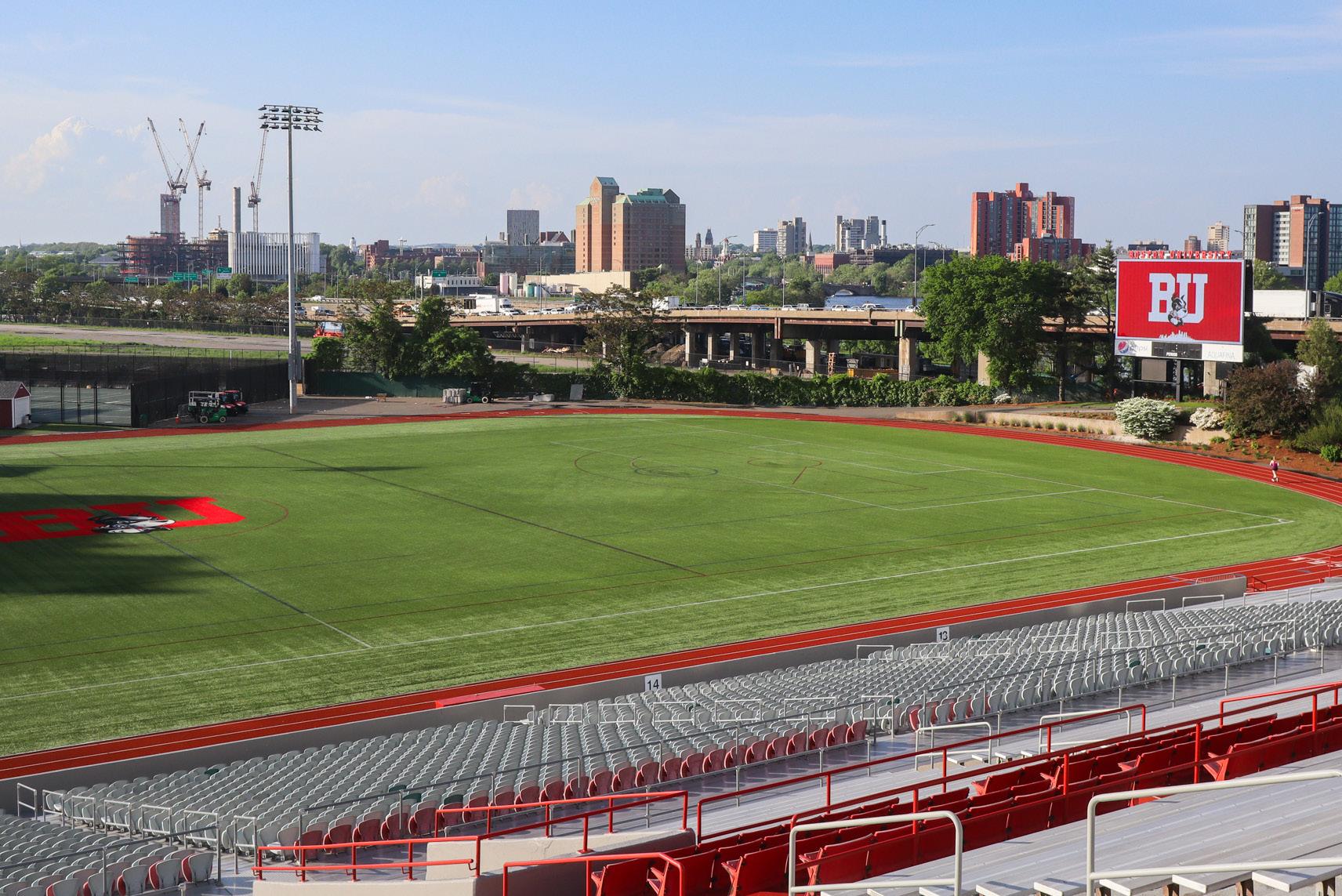
The team finished third in the PL’s overall team defensive rebounds.
Graduate wing Anthony Morales tied for first in 3-point field goals made, and graduate guard Miles
Brewster finished third in 3-point field goal percentage with over 40% for the season.
After dribbling enough to build solid momentum, the team looks to add to that drive in the fall with two recruits, Azmar Abdullah and Ben Defty, and a walk-on, Quinn Nielsen.
“We understood our team a little bit better,” said men’s basketball head coach Joe Jones. “I thought we really started to surge, and hopefully [we can] bring some of that momentum into next season.”
When scouting out recruits, Jones looks for selflessness, accountability and competitiveness. Brown agrees, as one key factor illuminates those qualities: alignment.
“We want alignment with our values and our identity,” Brown
said. “We’re looking for … people who want to be pushed, who want to be coached and who want to ultimately grow into the best version of themselves.”
Brown saw those traits in Avellar, who was a captain for her team at Nauset Regional High School and a three-time All-State and Eastern Massachusetts First Team selection.
“[Avellar] is a fighter,” Brown said. “She has this quality where she’s going to make something happen out of nothing, and I love when players have that. She doesn’t need it to be this kind of perfect game. She’s going to go get the game.”
As Avellar gears up for the preseason, she reflects on what value she brings to the team.
“The only thing you can control is your effort,” she said. “No matter what I’m doing, even if it’s off the field, I need to be giving 100% effort, and it’s helped me so far.”
Although the BU men’s soccer
team was eliminated in the NCAA opener against Syracuse University, the program typified Avellar’s mindset by tallying 16 NCAA appearances and clinching its firstever Patriot League title this past season.
Entering the PL Tournament as the No. 3 seed, BU’s field hockey team also looked to claim a PL title, which they last earned in 2018. Like men’s basketball, field hockey fell in the PL semifinal as Lafayette University scored in the fourth minute of overtime.
Similarly to women’s soccer, men’s basketball, men’s soccer and field hockey, the women’s basketball team, which ranked third in the conference, looks for passion, coachability and collective effort.
“Those are all big signs of, ‘Is this going to be a really good culture kid?’” said head coach Melissa Graves. “We look for those little details, and every single person that we’re bringing in has all those
attributes, so that’s really exciting for us.”
Just as the program welcomes five recruits, star senior forward Caitlin Weimar breaks from BU to join the North Carolina State University basketball program — leaving BU’s new and returning players to step up their game.
“The biggest piece is just trying to figure out collectively: How can we replace what Caitlin Weimar did for the program?” said Graves. “She’s an incredible leader and incredible on-the-floor player.”
Following a stellar three-season career at BU, Weimar is now ranked 11th in program history with 1,277 points. She became the program’s first-ever Patriot League Player of the Year, ECAC Division I Player of the Year and two-time Patriot League Defensive Player of the Year.
Freshman guard Hildur Gunnsteinsdóttir and the other recruits look to improve upon Weimar’s efforts –– as a collective.
“I don’t think that one player, or that I, will fill [Weimar’s] shoes,” said Gunnsteinsdóttir. “I do think that we [need to] work together. Teamwork will definitely be a large part in that.”
As the athletes prepare physically in the offseason –– drilling, running, lifting –– coaches across the board emphasize the equal importance of character and cohesion.
“We’re going to do a lot of team bonding this summer for [the recruits] to not only acclimate to BU, but [to] each other,” Graves said. “I expect a lot of energy, a lot of positivity, just to compete and not give up.”
Jones sees the team’s bond as their “superpower.”
“Our character and the way [players] feel about each other are the two things that will continue to set us apart, and we can’t lose sight of that,” he said. “That’s more important than anything. That’s more important than how we play, our talent. Really, it comes down to how connected we are and how much they care about each other.”